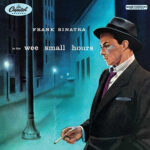What defines a truly great country song? It’s the storytelling, the raw emotion, and that unmistakable twang that resonates deep within. These are songs that paint vivid pictures, evoke powerful feelings, and often become companions on life’s journey. From the mournful cries of Hank Williams to the genre-bending sounds of Ray Charles, and the global appeal of Shania Twain, country music’s story is rich and ever-evolving. This list celebrates that legacy, focusing on Classic Country Songs that have shaped the genre.
Originally, Rolling Stone launched Rolling Stone Country in 2014 with a list of 100 essential songs. Now, marking its 10th anniversary, this list expands to 200, delving deeper into the history of country music and highlighting aspects that deserve greater recognition. This updated compilation arrives at a pivotal moment, where a timeless folk song by Tracy Chapman can top the country charts, and Beyoncé’s Cowboy Carter album illuminates the significant contributions of Black artists like Linda Martell to country music. Nearly a century after pioneers such as the Carter Family, Jimmie Rodgers, and DeFord Bailey laid the foundation, the tradition continues to flourish. Join us as we explore some of the most classic country songs that define this enduring genre.
Brad Paisley, ‘Welcome to the Future’
 Brad Paisley performs at Sleep Train Amphitheatre on September 26, 2009 in Wheatland, California. (Photo by Tim Mosenfelder/Getty Images)
Brad Paisley performs at Sleep Train Amphitheatre on September 26, 2009 in Wheatland, California. (Photo by Tim Mosenfelder/Getty Images)
Image Credit: Tim Mosenfelder/Getty Images
Brad Paisley, known as mainstream country’s most prominent liberal voice, ambitiously packed this nearly six-minute single from his 2009 album American Saturday Night with layers of meaning. He aimed to deliver “a little multigenerational truth with a strong sense of hope and possibility.” In “Welcome to the Future,” Paisley expresses wonder at modern marvels like car DVD players and mobile phones, contemplating how trans-Pacific commerce might have astonished his WWII veteran grandfather. The song then shifts to acknowledge racial progress within his own lifetime, a theme he emphasized by debuting the song live at the White House. Paisley’s signature ADD style shines through, blending synth lines with traditional steel guitar, fiddle breaks with fast-paced riffs, and thoughtful observations with heartfelt sentiment in this modern classic country song.
Stoney Edwards, ‘Hank and Lefty Raised My Country Soul’
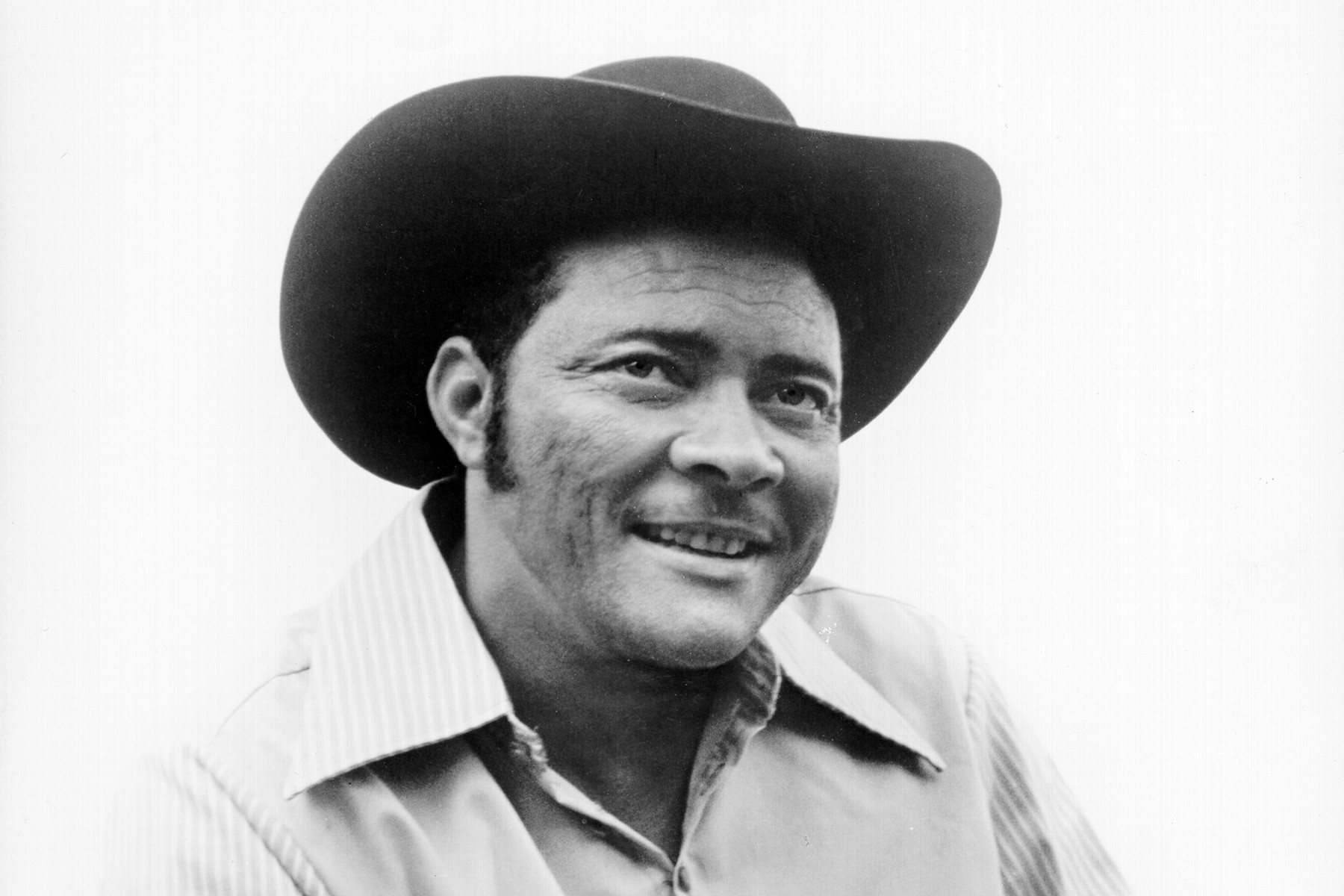 UNSPECIFIED – CIRCA 1970: Photo of Stoney Edwards Photo by Michael Ochs Archives/Getty Images
UNSPECIFIED – CIRCA 1970: Photo of Stoney Edwards Photo by Michael Ochs Archives/Getty Images
Image Credit: Michael Ochs Archives/Getty Images
Stoney Edwards broke barriers as one of the Black artists who signed with labels after Charley Pride paved the way in the country music industry. His song “Hank and Lefty Raised My Country Soul,” a tribute to his admiration for country music forefathers Hank Williams and Lefty Frizzell, serves as a poignant reminder of the pressures Black artists faced. They often had to explicitly assert their country music authenticity in ways their white counterparts did not. Despite this context, the song stands on its own as a remarkable piece of music. The arrangement cleverly merges the sounds of Williams’ Drifting Cowboys and Frizzell’s Western Cherokees, while Edwards’s distinct Oklahoma twang is uniquely his. The narrative—embracing his father’s musical heroes rather than rejecting them—perfectly embodies the spirit of country tradition, making this a deeply resonant classic country song.
Loretta Lynn and Conway Twitty, ‘You’re the Reason Our Kids Are Ugly’
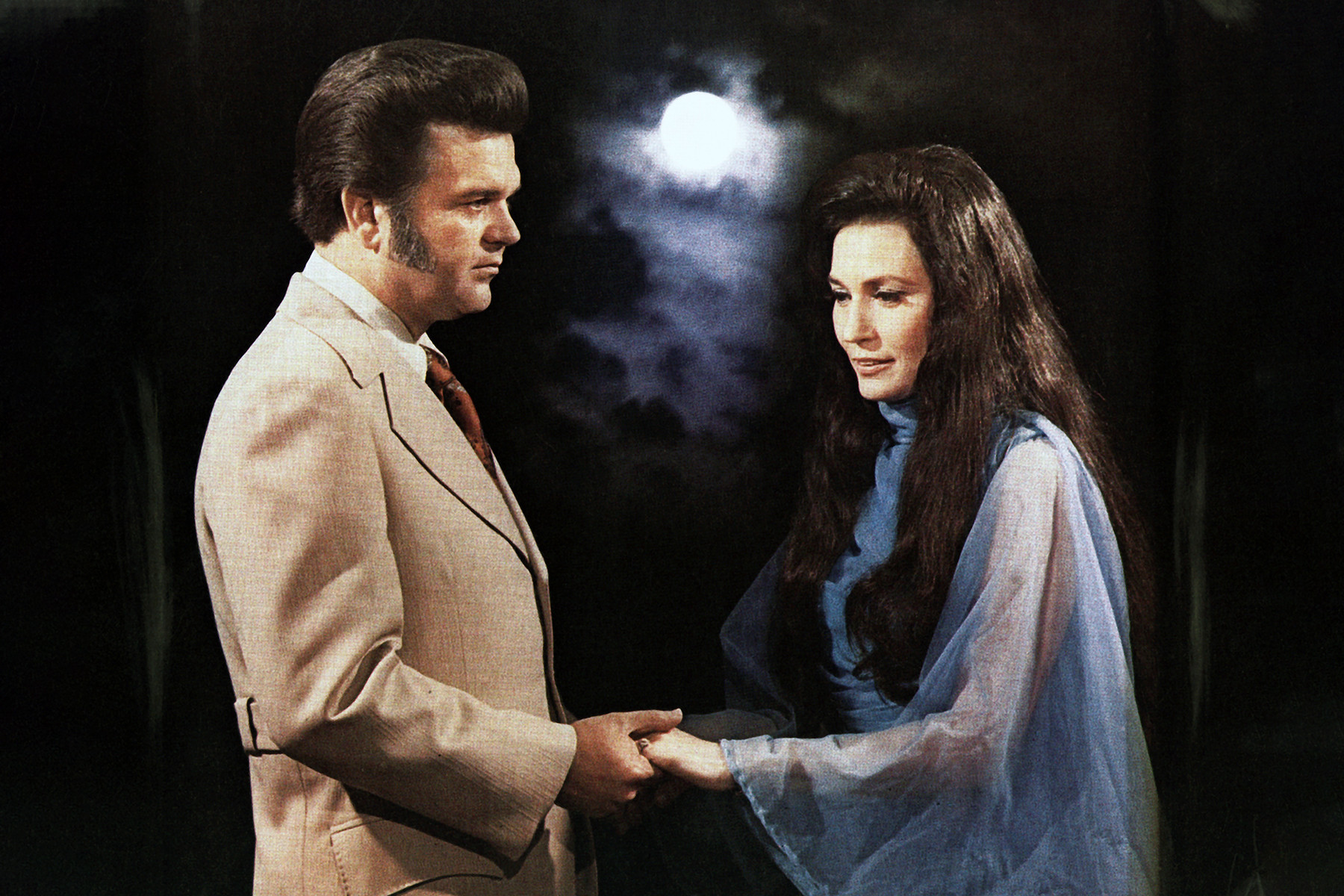 CIRCA 1979: Loretta Lynn and Conway Twitty pose for a portrait in circa 1979. (Photo by Michael Ochs Archives/Getty Images)
CIRCA 1979: Loretta Lynn and Conway Twitty pose for a portrait in circa 1979. (Photo by Michael Ochs Archives/Getty Images)
Image Credit: Michael Ochs Archives/Getty Images
The 1970s were the golden age of country music power couples, from George Jones and Tammy Wynette to Johnny Cash and June Carter Cash. Yet, perhaps the most iconic duo wasn’t even romantically involved: Loretta Lynn and Conway Twitty. Their collaboration began with an impressive streak of five consecutive Number One hits early in the decade, and they remained consistent chart-toppers. “You’re the Reason Our Kids Are Ugly” stands out as their most peculiar and humorous contribution to the country canon. This playfully funky, comedic toe-tapper never takes itself seriously, yet Lynn and Twitty fully commit to their roles. They playfully trade barbs about each other’s aging and supposed genetic flaws, creating a uniquely entertaining and classic country song.
Gretchen Wilson, ‘Redneck Woman’
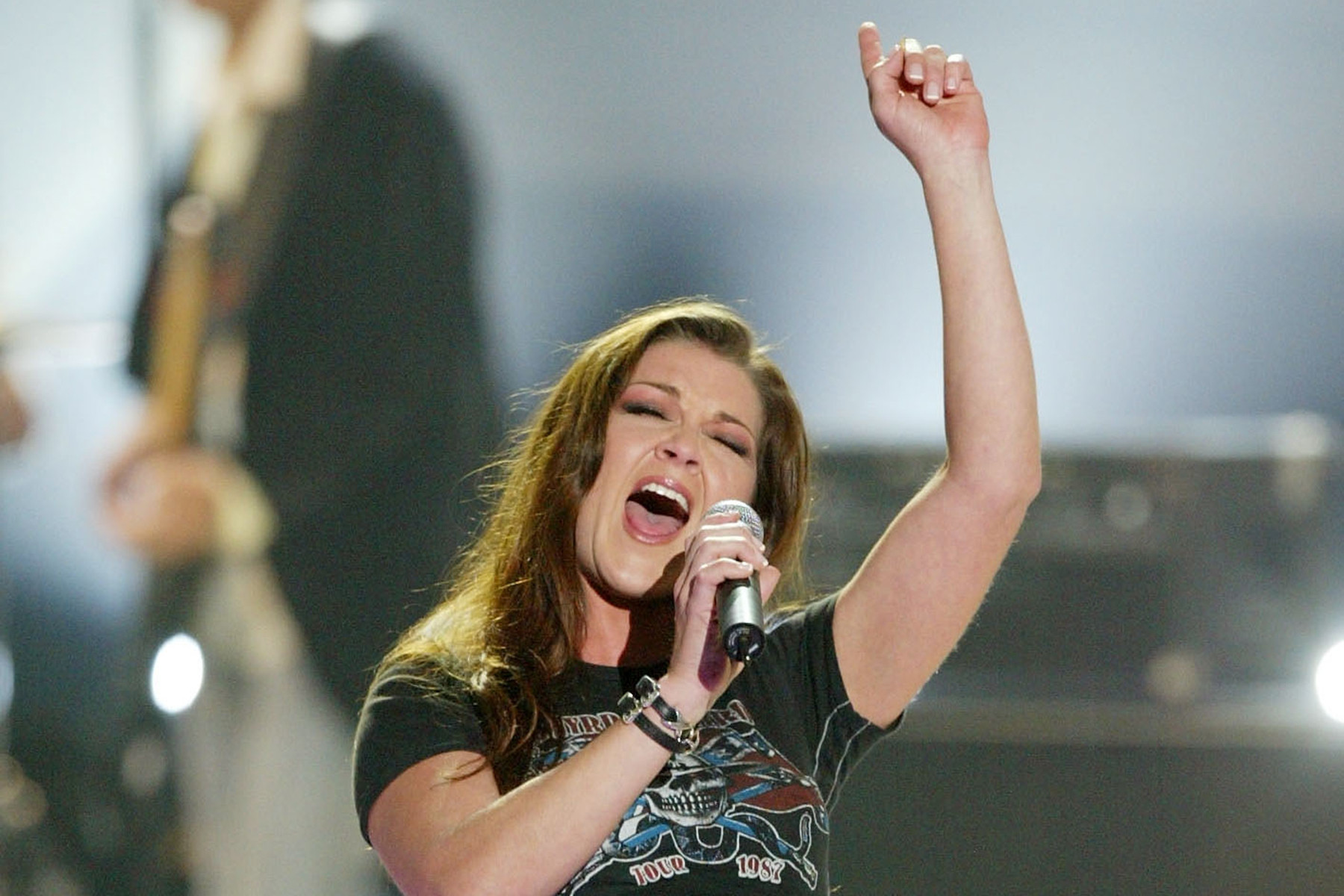 LAS VEGAS – MAY 26: Gretchen Wilson performs on stage at the
LAS VEGAS – MAY 26: Gretchen Wilson performs on stage at the
Image Credit: Kevin Winter/Getty Images
The MuzikMafia, a collective of Nashville outsiders known for their inclusive open mic nights, burst into the mainstream with the simultaneous success of Big & Rich’s “Save a Horse (Ride a Cowboy)” and Gretchen Wilson’s “Redneck Woman.” With its infectious swing, celebration of beer-drinking, and Walmart-shopping identity, “Redneck Woman” quickly climbed the country charts. Following a standout performance at the 2004 Country Radio Seminar, it became the fastest-rising Number One hit since Billy Ray Cyrus’s “Achy Breaky Heart.” While Wilson herself couldn’t replicate its monumental success, the song undeniably paved the way for strong, rocking female artists like Miranda Lambert and Kimberly Perry, solidifying its place as a classic country song of female empowerment.
Gene Autry, ‘Back in the Saddle Again’
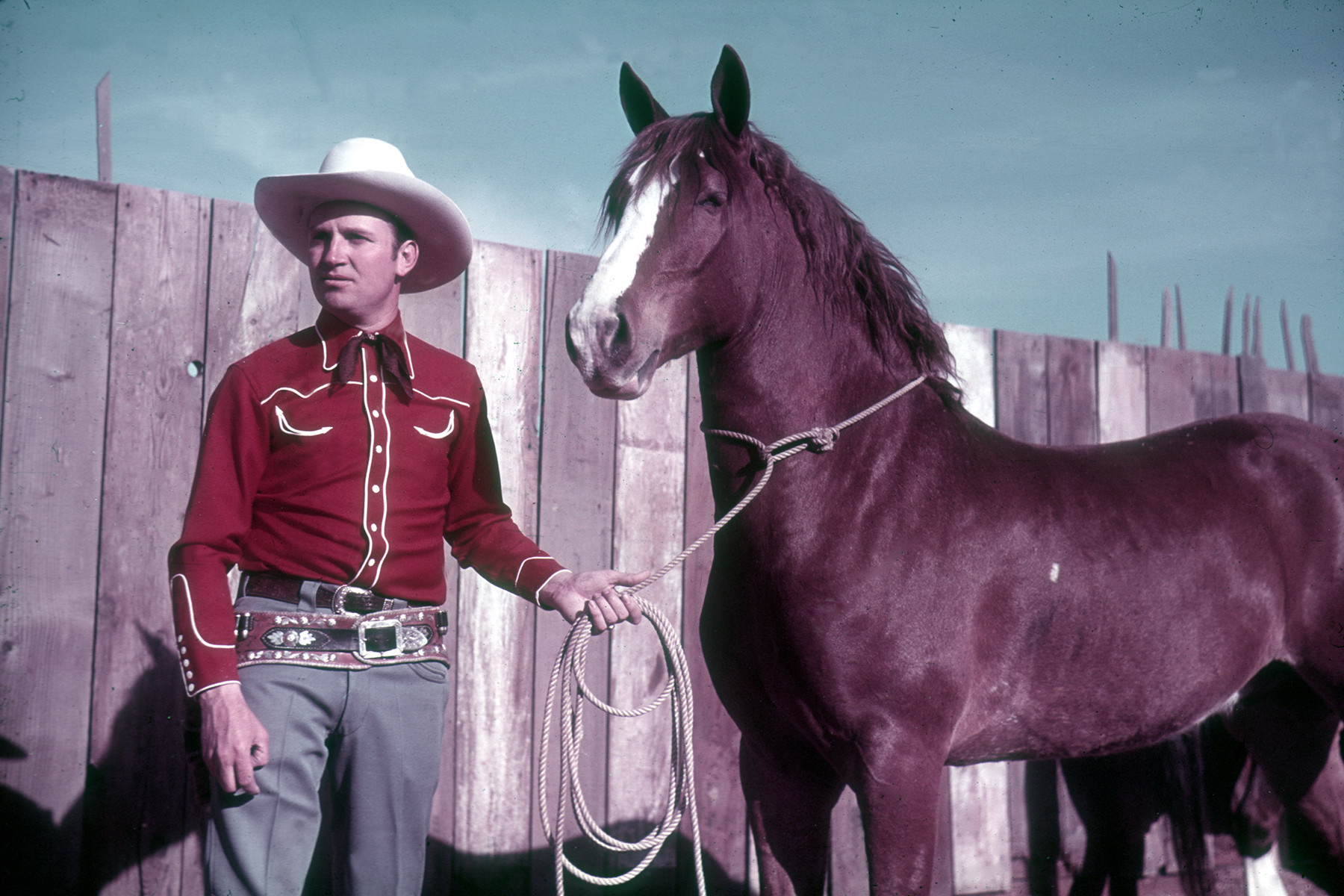 LOS ANGELES – CIRCA 1940: Gene Autry poses with his horse Champion circa 1940 in Los Angeles, California. (Photo by Ivan Dmitri/Michael Ochs Archives/Getty Images)
LOS ANGELES – CIRCA 1940: Gene Autry poses with his horse Champion circa 1940 in Los Angeles, California. (Photo by Ivan Dmitri/Michael Ochs Archives/Getty Images)
Image Credit: Ivan Dmitri/Michael Ochs Archives/Getty Images
According to Country Music U.S.A. by Bill C. Malone and Tracy W. Laird, Gene Autry “completed the ‘romantic westernizing’ begun by [Roy] Rogers.” In fact, Autry’s early career largely involved performing songs popularized by Rogers. However, Autry possessed his own unique charm that translated into both film stardom and record sales. By the time “Back in the Saddle Again” emerged, Autry was already a well-established star. This iconic song was a last-minute addition to the 1938 film Border G-Man, commissioned when songwriter Ray Whitley received a 5 a.m. request for a new song to be delivered by 8 a.m. His wife’s simple suggestion after he uttered the phrase “Well, I’m back in the saddle again” sparked the title. Autry recorded it numerous times, with the 1939 version becoming his second gold record. It evolved into his signature theme song and the title of his autobiography, cementing its status as a quintessential classic country song deeply intertwined with the Western image.
Brandi Carlile, ‘The Joke’
 LOS ANGELES, CA – JULY 12: Brandi Carlile performs during an evening with Brandi Carlile at The GRAMMY Museum on July 12, 2018 in Los Angeles, California. (Photo by Timothy Norris/Getty Images)
LOS ANGELES, CA – JULY 12: Brandi Carlile performs during an evening with Brandi Carlile at The GRAMMY Museum on July 12, 2018 in Los Angeles, California. (Photo by Timothy Norris/Getty Images)
Image Credit: Timothy Norris/Getty Images
Brandi Carlile’s “The Joke” is a powerful anthem, featuring one of the most extraordinary vocal performances in 21st-century country music. It poignantly captures the anxieties and fears felt by marginalized and minority groups during the Donald Trump era. Carlile’s soaring vocals, coupled with the empathetic production by David Cobb and Shooter Jennings, embody the era’s pain, anger, and desperation. “The Joke” immediately became a show-stopping performance piece, earning Carlile well-deserved Grammy awards. It would undoubtedly be considered a standard by now, were it not for the fact that it’s almost impossible to imagine another singer delivering it with the same raw power and emotional resonance as Carlile herself, making it a modern classic country song with profound impact.
Zach Bryan, ‘Something in the Orange’
 Zach Bryan,
Zach Bryan,
Image Credit: Griffin Lotz for Rolling Stone
Zach Bryan took an unconventional path to country music stardom. Instead of the traditional Nashville route, he joined the Navy and spent his off-duty hours writing songs in his barracks and sharing them on YouTube. He independently released two albums while still in active service. Following an honorable discharge and a major-label deal, Bryan released “Something in the Orange” as the lead single from his 2022 album, American Heartbreak. The song highlights Bryan’s unique strengths: simple, uncluttered instrumentation that puts the focus squarely on his poetic lyrics, delivered in an urgent, plainspoken voice. Bryan proved that in the 2020s, unpretentious authenticity could fill arenas, establishing him as a major act across genres and solidifying “Something in the Orange” as a classic country song for a new generation.
The Oak Ridge Boys, ‘Elvira’
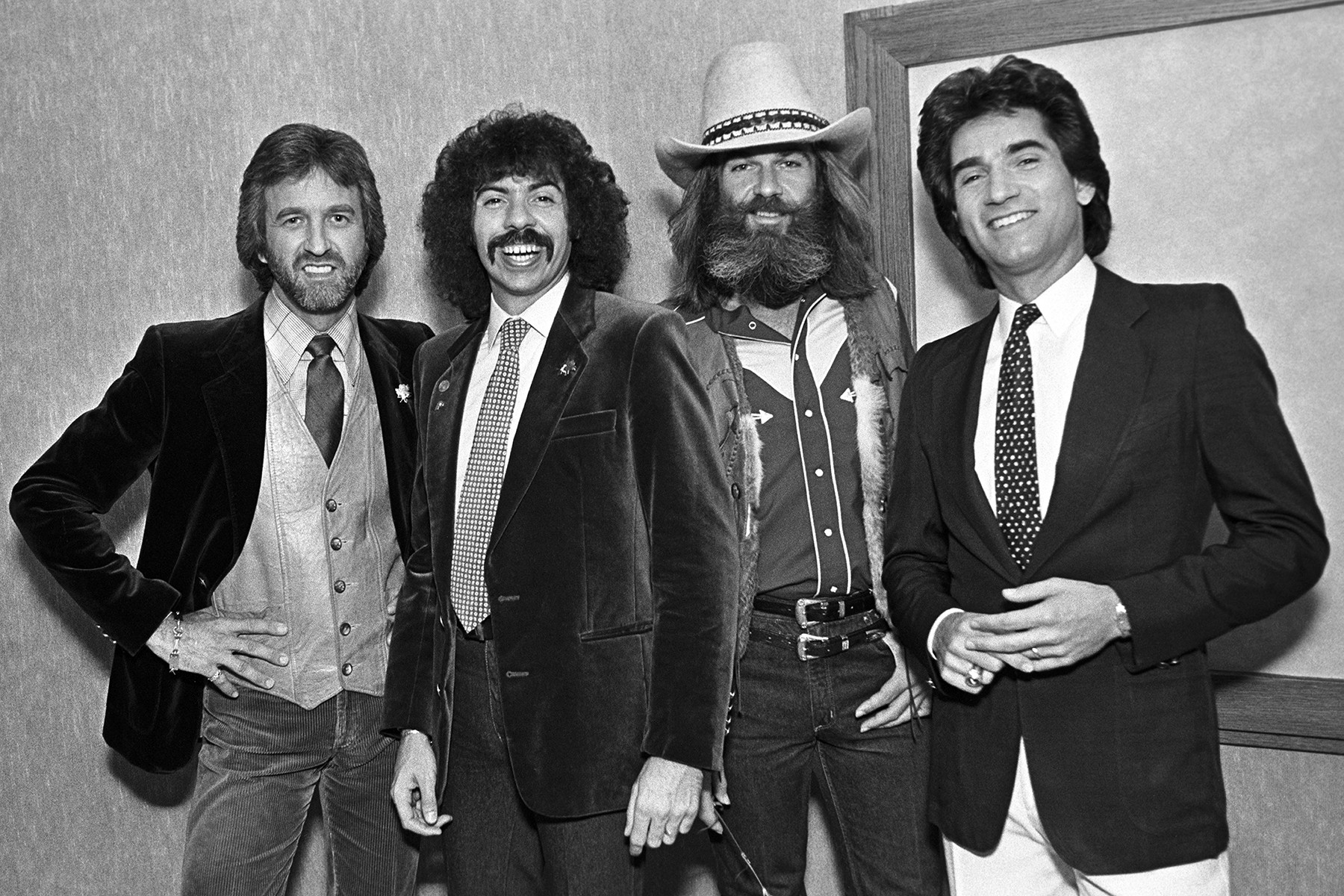 The Oak Ridge Boys backstage at Holiday Star, Chicago, Illinois, May 25, 1981. (Photo by Kirk West/Getty Images)
The Oak Ridge Boys backstage at Holiday Star, Chicago, Illinois, May 25, 1981. (Photo by Kirk West/Getty Images)
Image Credit: Kirk West/Getty Images
The Oak Ridge Boys began their journey in the 1940s as the Oak Ridge Quintet, singing gospel in Knoxville, Tennessee. They seamlessly transitioned into country music in the 1970s and 1980s, maintaining their classic vocal group tradition with a polished, contemporary sound. Their easygoing style and musical versatility facilitated successful crossover moves, including collaborations with artists like Paul Simon (“Slip Slidin’ Away”). Their biggest pop moment arrived with “Elvira,” a song characterized by its jovial rhythm, horn section, and the irresistibly catchy, singalong hook “Giddy up, um-poppa-um-poppa, mow, mow,” delivered by the deep bass voice of Richard Sterban. “Elvira” remains a beloved and classic country song that transcends genre boundaries.
Beyoncé, ‘Texas Hold ‘Em’
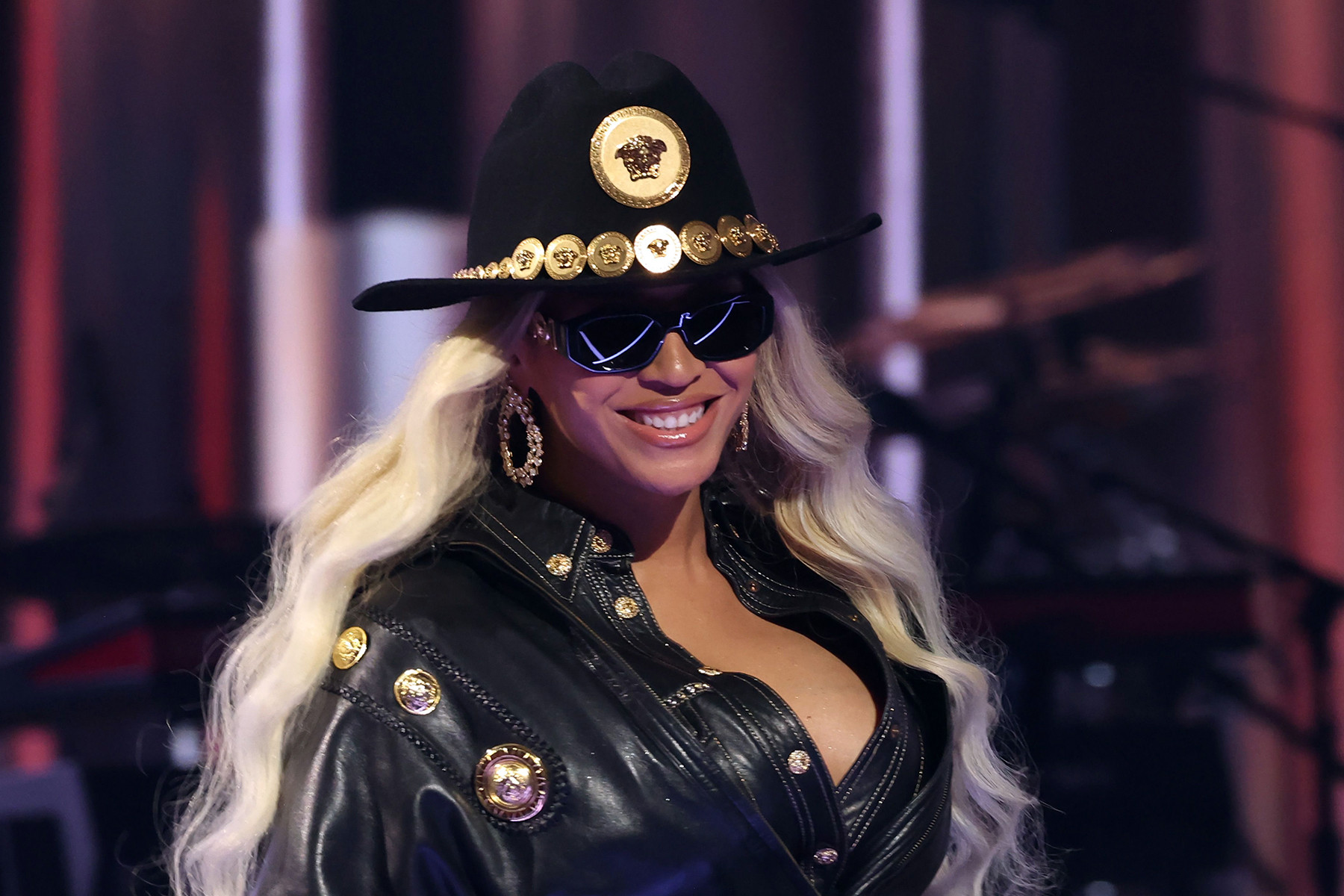 LOS ANGELES, CALIFORNIA – APRIL 01: (FOR EDITORIAL USE ONLY) Beyoncé accepts the Innovator Award onstage during the 2024 iHeartRadio Music Awards at Dolby Theatre in Los Angeles, California on April 01, 2024. Broadcasted live on FOX. (Photo by Kevin Mazur/Getty Images for iHeartRadio)
LOS ANGELES, CALIFORNIA – APRIL 01: (FOR EDITORIAL USE ONLY) Beyoncé accepts the Innovator Award onstage during the 2024 iHeartRadio Music Awards at Dolby Theatre in Los Angeles, California on April 01, 2024. Broadcasted live on FOX. (Photo by Kevin Mazur/Getty Images for iHeartRadio)
Image Credit: Kevin Mazur/Getty Images
Released in February 2024, Beyoncé’s “Texas Hold ‘Em” has already become a groundbreaking track. It marked the first time a Black woman’s song debuted at the top of the Billboard Hot Country Songs chart. Its long-term impact remains to be seen: Will it further integrate country radio? Will it spark a line-dance craze or a traditionalist backlash? Perhaps all of the above. What is undeniable is that from Rhiannon Giddens’ opening banjo lick to the bareback Western beat and the fife-and-drum-inspired whistle breakdowns, this “real-life boogie and … hoedown” is a 21st-century country anthem of the highest caliber. “Texas Hold ‘Em” is rapidly becoming a defining and classic country song of the modern era.
Johnny Rodriguez, ‘Ridin’ My Thumb to Mexico’
 IN CONCERT – Shoot Date: January 29, 1975. (Photo by ABC Photo Archives/Disney General Entertainment Content via Getty Images) JOHNNY RODRIGUEZ
IN CONCERT – Shoot Date: January 29, 1975. (Photo by ABC Photo Archives/Disney General Entertainment Content via Getty Images) JOHNNY RODRIGUEZ
Image Credit: BC Photo Archives/Disney General Entertainment Content/Getty Images
Johnny Rodriguez, the first country star of Mexican-American heritage, showcased the genre’s fluidity by recording songs in both English and Spanish. He noted the thematic similarities between Mexican and country music in Ken Burns’ Country Music documentary: “You have stories in Mexican music, and country music said almost the same thing, just in different languages.” His 1973 single “Ridin’ My Thumb to Mexico,” a self-penned weeper about escaping troubles by disappearing into another country, perfectly illustrates this. The forlornness in his voice contrasts beautifully with Jerry Kennedy’s lush production. It became his second Number One hit, one of many Rodriguez achieved in the 1970s, and a classic country song about escape and longing.
Ricky Skaggs, ‘Heartbroke’
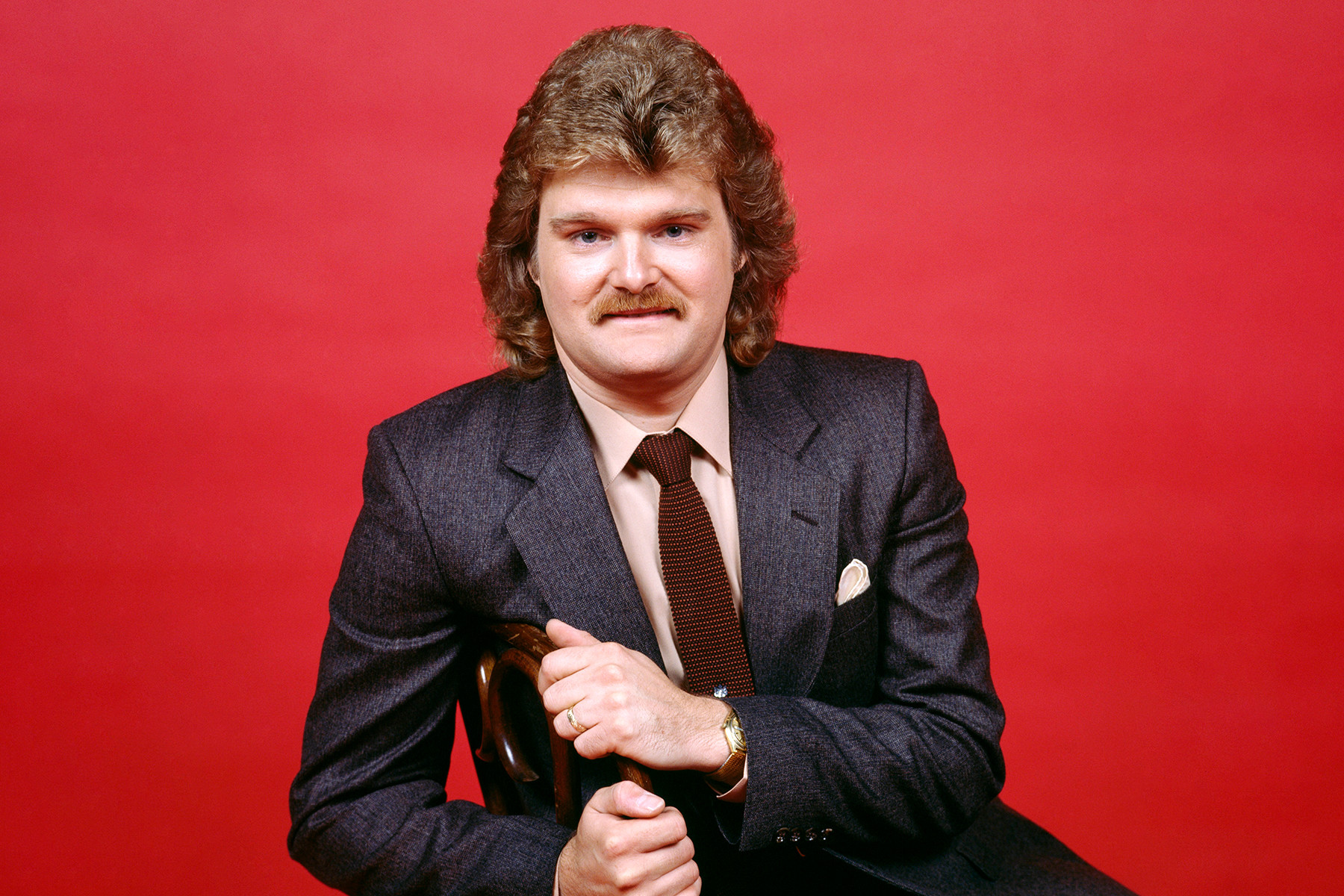 NASHVILLE – OCTOBER 11: Counrty music singer Ricky Skaggs poses for a portrait for The 16th Annual Country Music Association Awards, (CMA Awards show), at the Grand Ole Opry House in Nashville, Tenn., October 11, 1982. (Photo by CBS via Getty Images)
NASHVILLE – OCTOBER 11: Counrty music singer Ricky Skaggs poses for a portrait for The 16th Annual Country Music Association Awards, (CMA Awards show), at the Grand Ole Opry House in Nashville, Tenn., October 11, 1982. (Photo by CBS via Getty Images)
Image Credit: CBS/Getty Images
Songwriter Guy Clark conceived his upbeat “Heartbroke” as reminiscent of a Chuck Berry tune. When Ricky Skaggs recorded it for his groundbreaking 1982 bluegrass-country album, Highways & Heartaches, the future Country Music Hall of Famer admitted he didn’t fully grasp the song’s meaning. Nevertheless, he knew how to perform it. “Heartbroke,” the first of three singles from that album to reach the top of the country chart, gained popularity with other artists, including a rising George Strait. However, Skaggs, a Kentucky native, delivered the most vibrant rendition. He slightly softened Clark’s line “pride is a bitch and a bore when you’re lonely,” but retained all of the song’s infectious joy, establishing it as a lively and classic country song.
Iris DeMent, ‘Let the Mystery Be’
 UNSPECIFIED – JANUARY 01: Photo of Iris DE MENT (Photo by Dave Peabody/Redferns)
UNSPECIFIED – JANUARY 01: Photo of Iris DE MENT (Photo by Dave Peabody/Redferns)
Image Credit: Dave Peabody/Redferns/Getty Images
Born in Arkansas and raised in Los Angeles, Iris DeMent possesses a distinctive voice with a vibrato-rich twang, and her songwriting consistently reflects heartfelt emotion and earthly spirituality. “Let the Mystery Be,” which opened her acclaimed 1993 debut, Infamous Angel, is a perfect example. The song thoughtfully considers ideas about heaven, purgatory, and the afterlife before concluding with a sensible acceptance of the unknown: “No one knows for certain and so it’s all the same to me/I think I’ll just let the mystery be.” It launched a remarkably unconventional career that has spanned gospel standards, protest songs, and an album inspired by Russian poet Anna Akhmatova (The Trackless Woods). “Let the Mystery Be” has become a standard in its own right, covered recently by Jeff Tweedy of Wilco, and is a thoughtful classic country song that invites contemplation.
Luke Combs, ‘Beer Never Broke My Heart’
 CLARKSTON, MICHIGAN – MAY 30: Luke Combs performs in support of his
CLARKSTON, MICHIGAN – MAY 30: Luke Combs performs in support of his
Image Credit: Scott Legato/Getty Images
Luke Combs has evolved into country music’s leading family man in the 2020s with heartfelt songs about his wife and children. However, he also proves he can still craft exceptional drinking songs. “Beer Never Broke My Heart,” released in 2019, rightfully earns its place in country’s esteemed drinking song canon. Combs’s relatable and clever lyrics, combined with his husky delivery, make it an instant classic. The way he emphasizes each phrase in the chorus with a deliberate pause — “Long neck! Ice cold! Beer never broke my heart!” — creates an infectious singalong energy. His soulful approach to the bridge (“It takes one hand to count the things I can count on”) demonstrates his ability to infuse genuine emotion into every line he sings, making this a modern classic country song for good times.
Turnpike Troubadours, ‘The Bird Hunters’
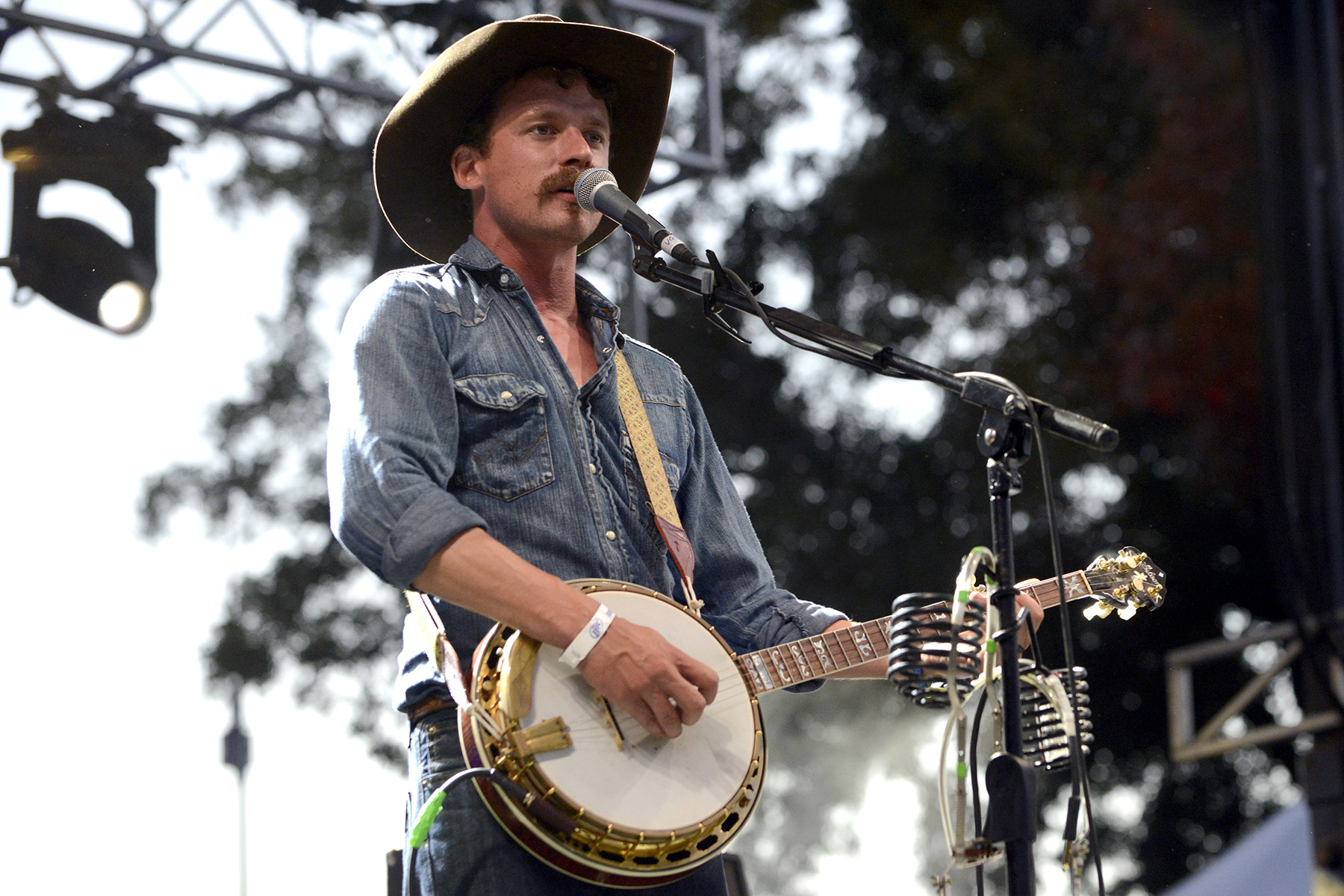 AUSTIN, TX – OCTOBER 05: Evan Felker of the Turnpike Troubadours performs during the Austin City Limits Music Festival at Zilker Park on October 5, 2014 in Austin, Texas. (Photo by Tim Mosenfelder/Getty Images)
AUSTIN, TX – OCTOBER 05: Evan Felker of the Turnpike Troubadours performs during the Austin City Limits Music Festival at Zilker Park on October 5, 2014 in Austin, Texas. (Photo by Tim Mosenfelder/Getty Images)
Image Credit: Tim Mosenfelder/Getty Images
Turnpike Troubadours are at the forefront of the Red Dirt country revival, an Oklahoma sound with roots in the mid-20th century. “The Bird Hunters,” a standout song from this tradition, is a story of returning home to East Oklahoma. It beautifully blends traditional storytelling with classic instrumentation, infused with a modern Southern rock sensibility. Evan Felker’s narrative about a man reassessing his life after a move to Tulsa doesn’t work out, finding solace with a friend and his dog, resonates deeply. It’s a familiar story, but the Troubadours tell it with a level of detail and heart that few bands can match, making it a truly authentic and classic country song within the Red Dirt genre.
Johnny Lee, ‘Lookin’ for Love’
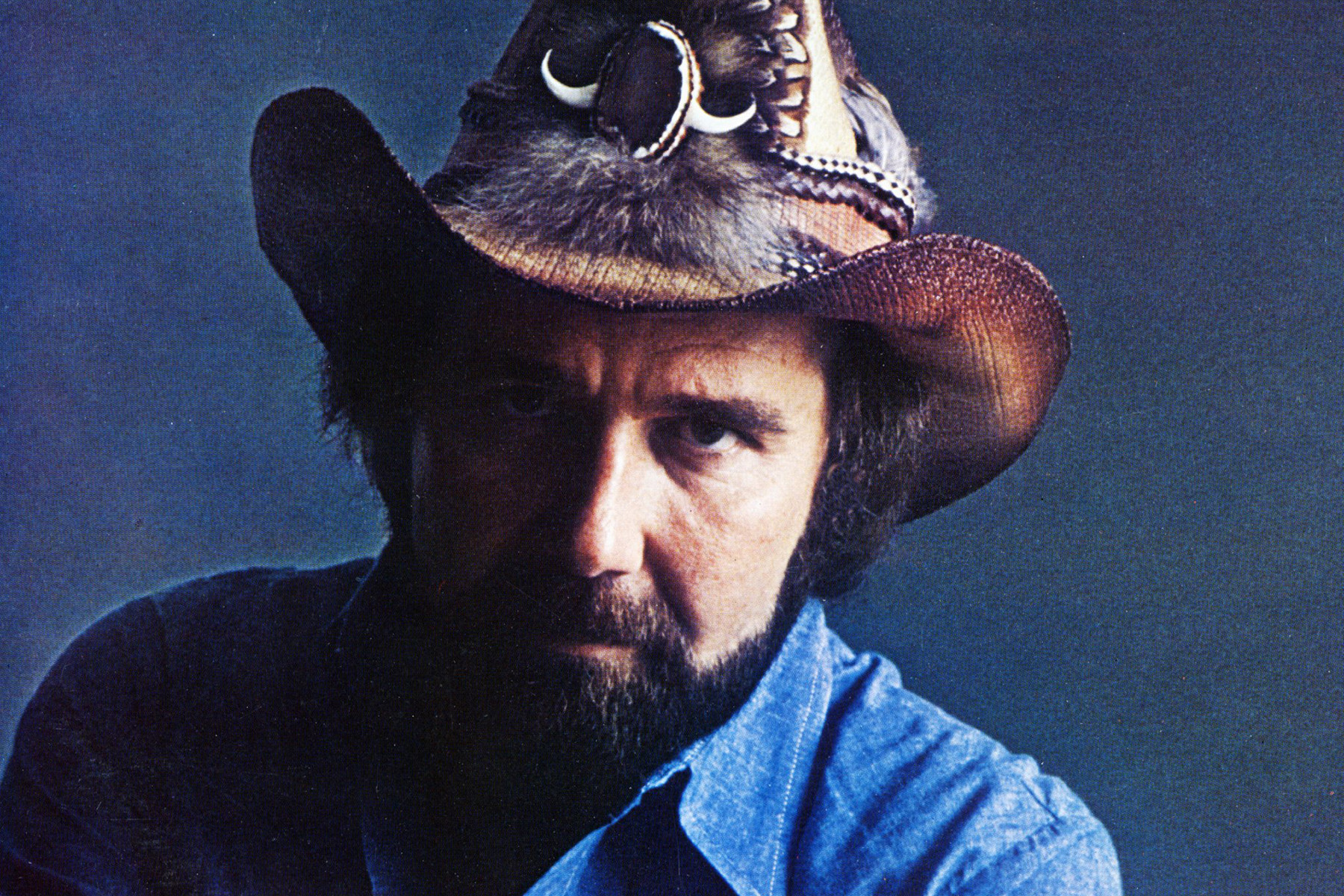 UNSPECIFIED – JANUARY 01: (AUSTRALIA OUT) Photo of Johnny LEE (Photo by GAB Archive/Redferns)
UNSPECIFIED – JANUARY 01: (AUSTRALIA OUT) Photo of Johnny LEE (Photo by GAB Archive/Redferns)
Image Credit: GAB Archive/Redferns/Getty Images
One evening in the late 1970s, Eagles manager Irving Azoff approached Johnny Lee, the bandleader at Gilley’s, a popular Houston bar, and asked if he’d be interested in singing in a movie Azoff was involved in as music coordinator. Lee, accustomed to empty promises, jokingly agreed. However, this casual agreement proved life-changing. Urban Cowboy, starring John Travolta and Debra Winger, became a box office phenomenon, and so did its soundtrack. The soundtrack’s centerpiece was “Lookin’ for Love,” a mellow, singles-bar anthem crooned by Lee. Gilley and another music coordinator discovered the song in a pile of demos. Lee was astounded by its relatability, stating, “I couldn’t believe I hadn’t written it myself, it was the story of my life up till then.” “Lookin’ for Love” became a defining classic country song of the Urban Cowboy era.
Keith Urban, ‘You’ll Think of Me’
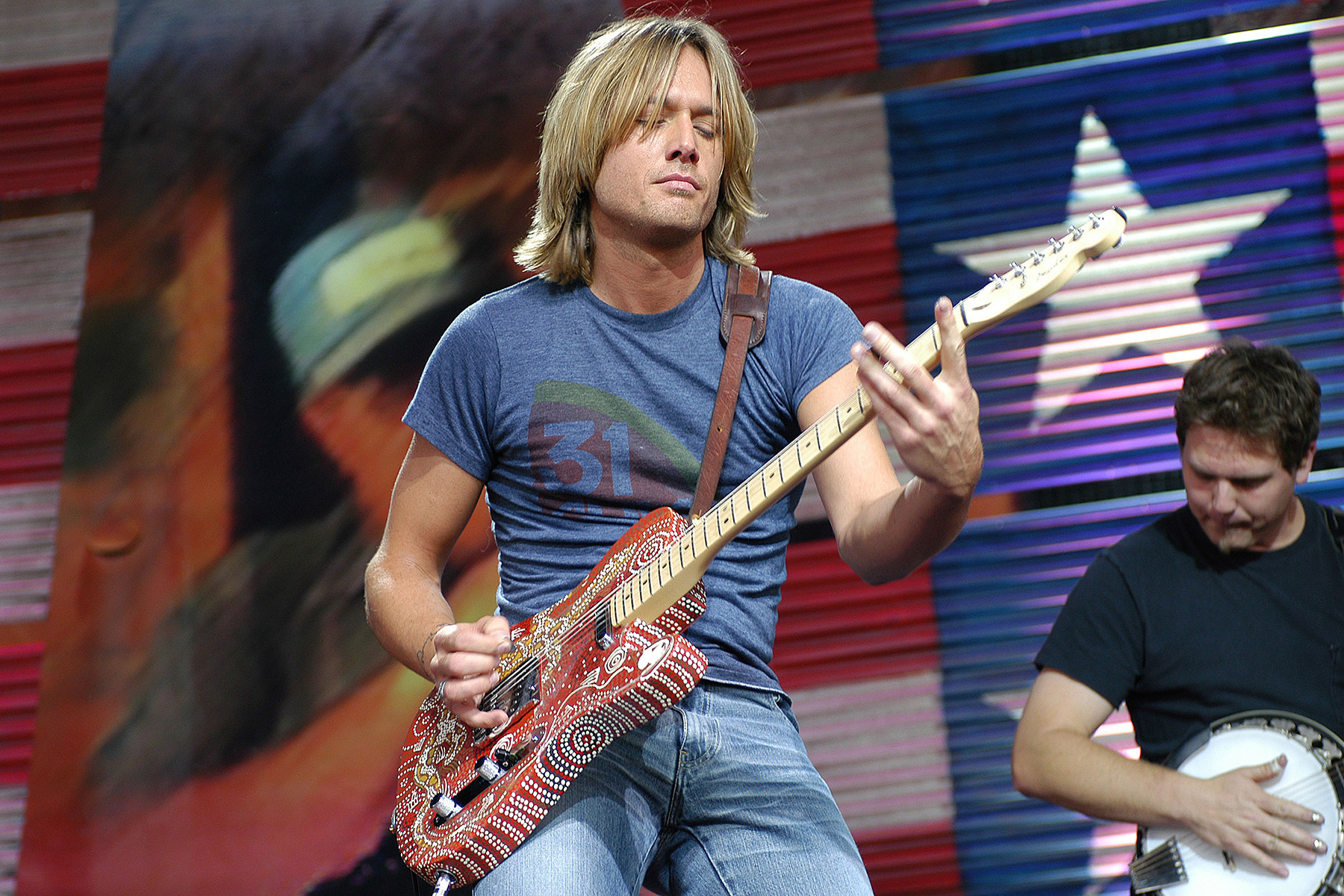 Keith Urban at Farm Aid, Pittsburgh, Pennsylvania, September 21, 2002. (Photo by Paul Natkin/Getty Images)
Keith Urban at Farm Aid, Pittsburgh, Pennsylvania, September 21, 2002. (Photo by Paul Natkin/Getty Images)
Image Credit: Paul Natkin/Getty Images
Keith Urban’s 2002 album, Golden Road, solidified his status as a supremely talented superstar with significant crossover appeal. “You’ll Think of Me,” the last and arguably finest of the album’s four singles, showcased the guitar virtuoso embracing his acoustic side for an exquisitely bitter breakup ballad. The lyrics, “Take your records, take your freedom/take your memories, I don’t need ‘em,” express a determined effort to move on, yet Urban’s mournful tone reveals the underlying pain. Released as a single in 2004, the song topped the country charts and crossed over to adult contemporary and adult top 40 radio, ultimately earning Urban his first Grammy award. “You’ll Think of Me” stands as a powerful and enduring classic country song of heartbreak.
Old Crow Medicine Show, ‘Wagon Wheel’
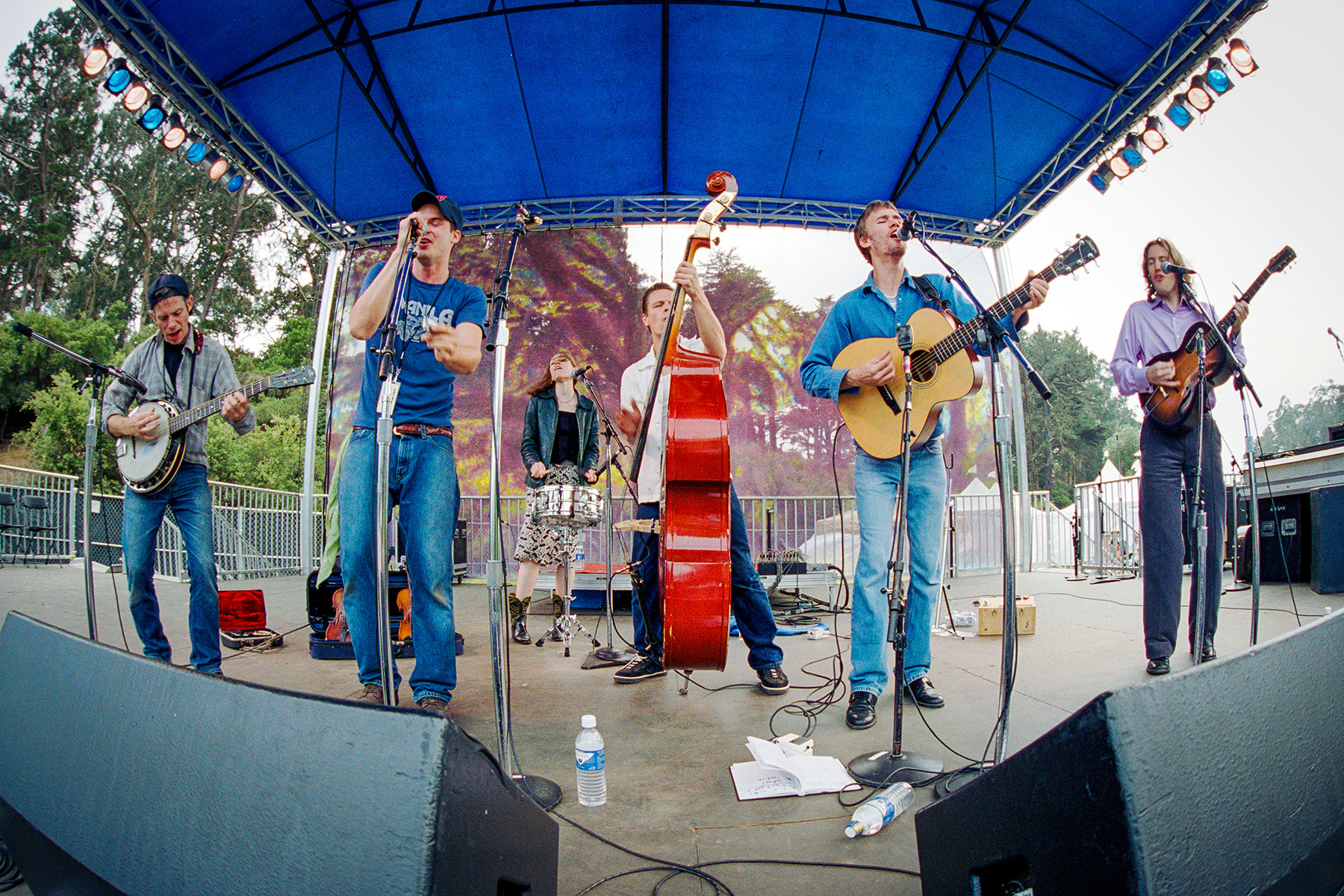 Old Crow Medicine Show with guests Gillian Welch and David Rawlings perform on stage at Hardly Strictly Bluegrass Festival in San Francisco, California, USA on 5th October, 2003. (Photo by Anthony Pidgeon/Redferns)
Old Crow Medicine Show with guests Gillian Welch and David Rawlings perform on stage at Hardly Strictly Bluegrass Festival in San Francisco, California, USA on 5th October, 2003. (Photo by Anthony Pidgeon/Redferns)
Image Credit: Anthony Pidgeon/Redferns/Getty Images
Old Crow Medicine Show’s “Wagon Wheel” had a long and winding journey to becoming a hit. The song originated as an unfinished Bob Dylan track from the 1973 Pat Garrett and Billy the Kid soundtrack sessions. Old Crow Medicine Show recorded a fiddle-driven version in 2004, adding their own lyrics to Dylan’s mumbled vocals. Nine years later, Darius Rucker’s warm rendition reached Number One on the Billboard Hot Country Songs chart, catapulting the song to mainstream popularity. Despite never meeting Dylan, Old Crow’s Critter Fuqua acknowledges the shared authorship: “the song is technically co-written by Bob Dylan.” “Wagon Wheel,” in its various iterations, has become a ubiquitous and classic country song that bridges generations and genres.
DeFord Bailey, ‘Pan-American Blues’
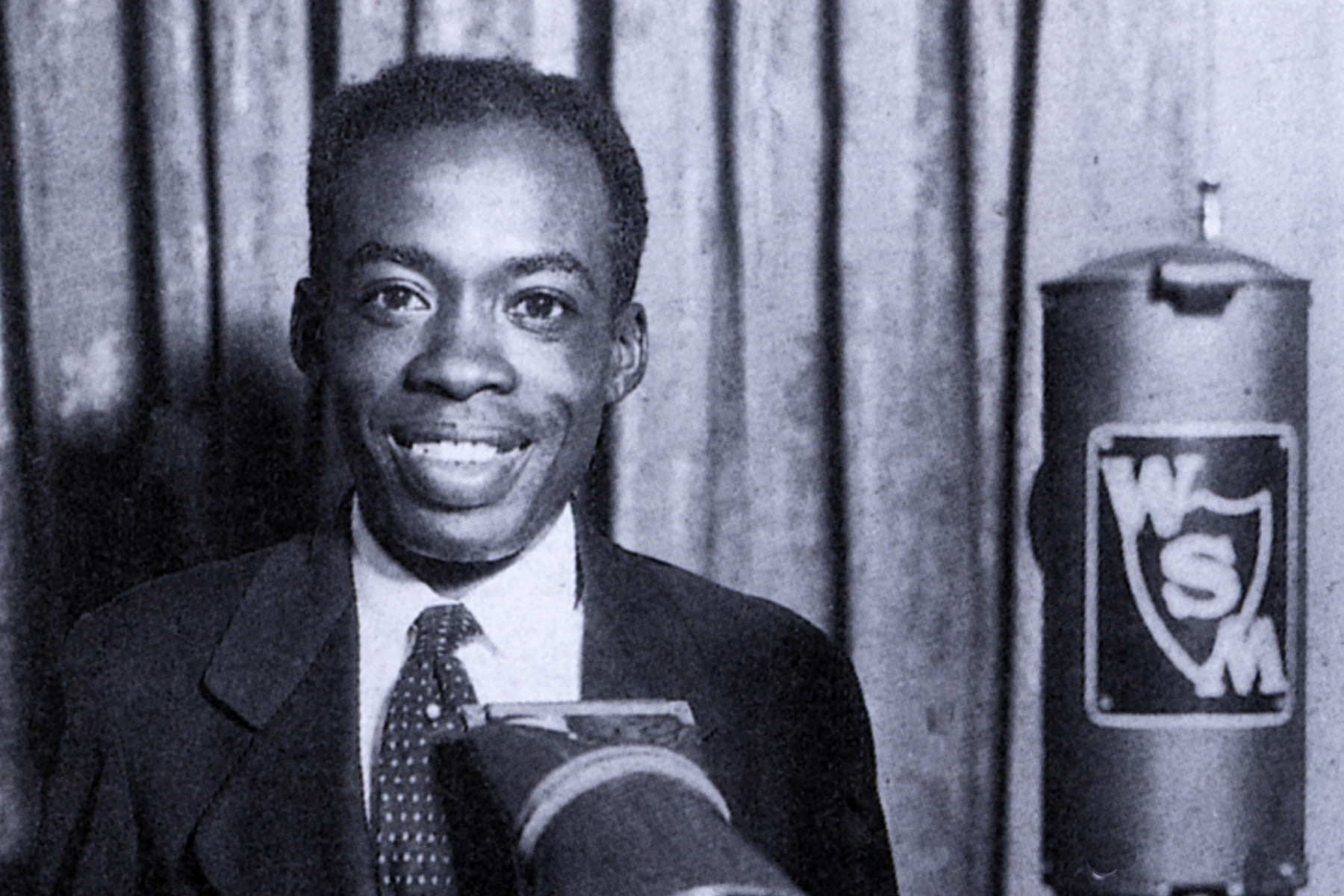 UNITED STATES – JANUARY 01: (AUSTRALIA OUT) USA Photo of DeFord BAILEY (Photo by GAB Archive/Redferns)
UNITED STATES – JANUARY 01: (AUSTRALIA OUT) USA Photo of DeFord BAILEY (Photo by GAB Archive/Redferns)
Image Credit: GAB Archive/Redferns/Getty Images
“Harmonica wizard” DeFord Bailey holds the record for most appearances on country radio’s influential WSM Barn Dance. Confined to bed due to polio as a child, Bailey absorbed the sounds of his native Tennessee—trains, hounds, fox hunters, and hens—and recreated them on his harmonica. “Pan-American Blues,” named after the train route between New Orleans and Cincinnati, is a three-minute piece of sonic artistry, evoking the feel of locomotive travel. Bailey was not only one of country music’s first Black stars but also a major early attraction on a rising radio program called The Grand Ole Opry. “Pan-American Blues” is a foundational and classic country song that showcases Bailey’s unique talent and early country music history.
Dierks Bentley, ‘I Hold On’
 LAS VEGAS, NV – APRIL 08: Musician Dierks Bentley performs onstage during Tim McGraw
LAS VEGAS, NV – APRIL 08: Musician Dierks Bentley performs onstage during Tim McGraw
Image Credit: Ethan Miller/Getty Images
In the mid-1990s, Dierks Bentley and his father drove an old Chevrolet pickup from Arizona to Nashville. In 2012, after Bentley had achieved stardom, his father passed away. While this context isn’t essential to appreciating his 2013 single “I Hold On,” knowing it adds profound depth to the song’s opening verse about his attachment to that pickup truck. The song appeared on Bentley’s seventh album, Riser, a significant release considered among his best. Though Bentley’s ascent to stadium-filling status may have been less rapid than some of his contemporaries, “I Hold On” and songs like it demonstrate his staying power. It’s a testament to enduring values and makes “I Hold On” a deeply personal and classic country song in Bentley’s catalog.
Sons of the Pioneers, ‘Tumbling Tumbleweeds’
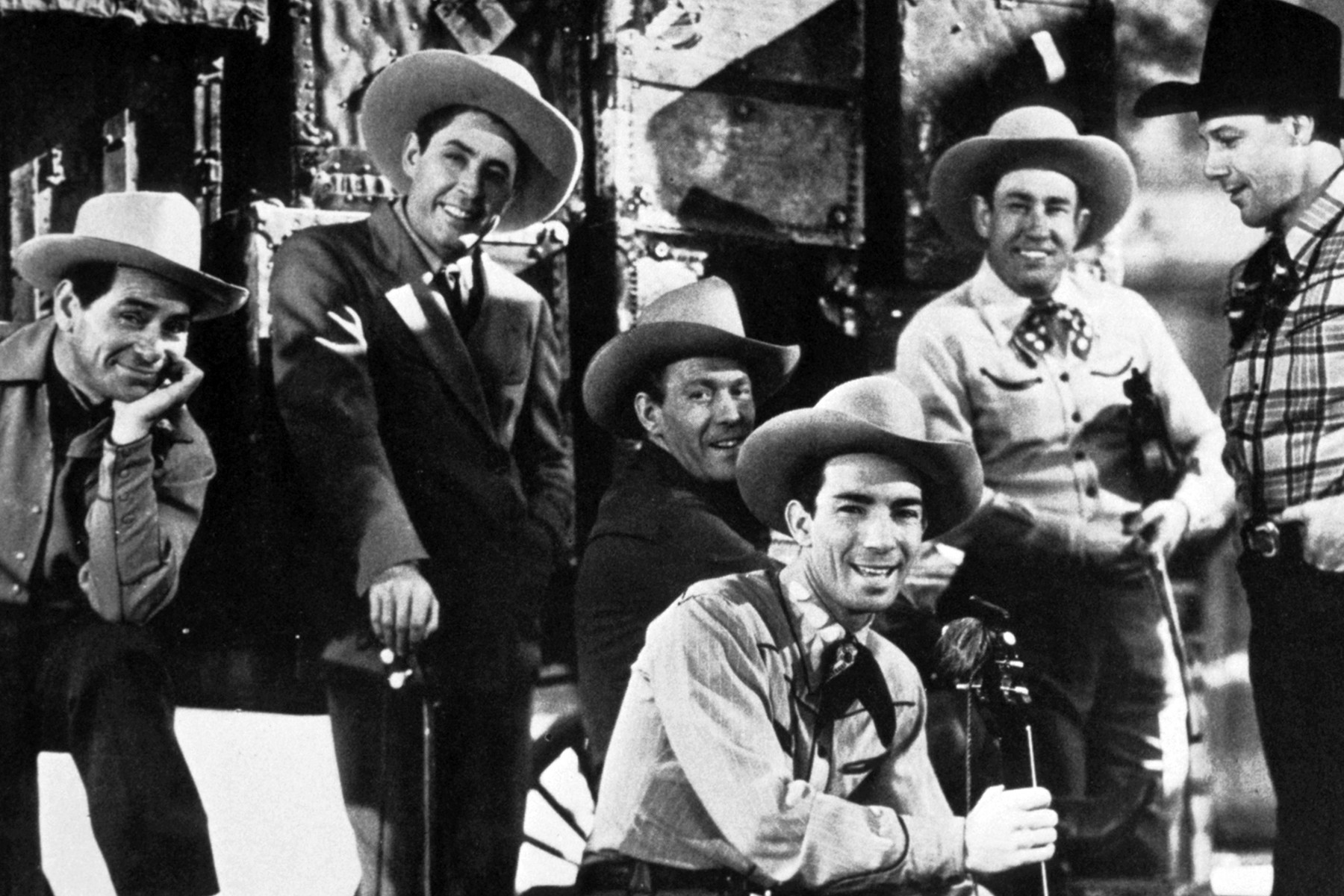 UNITED STATES – JANUARY 01: (AUSTRALIA OUT) USA Photo of SONS OF PIONEERS, – (Photo by GAB Archive/Redferns)
UNITED STATES – JANUARY 01: (AUSTRALIA OUT) USA Photo of SONS OF PIONEERS, – (Photo by GAB Archive/Redferns)
Image Credit: GAB Archive/Redferns/Getty Images
Early recordings by Sons of the Pioneers, led by Roy Rogers before his Hollywood “King of the Cowboys” fame, possessed an ethereal quality thanks to the vocal interplay between Rogers, Bob Nolan, and Tim Spencer. “Tumbling Tumbleweeds,” recorded during their first session, evokes expansive Western skies with its sweeping harmonies and prominent violin. However, the lyric’s romanticism contrasts with its historical context: this seemingly carefree song about the joys of vagrancy was released during the Great Depression. Despite this, or perhaps because of it, the song resonated. Even with its whimsical element—tumbleweeds “pledging their love to the ground”—“Tumbling Tumbleweeds” became a defining and classic country song of the Western genre.
Mary Gauthier, ‘Mercy Now’
 Mary Gauthier during 2005 Sundance Film Festival – ASCAP Music Cafe with Anna Nalick, Lori McKenna, Los Pinguos, Suzanne Vega and Ricki Lee Jones at Plan B in Park City, Utah, United States. (Photo by Fred Hayes/WireImage)
Mary Gauthier during 2005 Sundance Film Festival – ASCAP Music Cafe with Anna Nalick, Lori McKenna, Los Pinguos, Suzanne Vega and Ricki Lee Jones at Plan B in Park City, Utah, United States. (Photo by Fred Hayes/WireImage)
Image Credit: Fred Hayes/WireImage
Mary Gauthier’s signature song, “Mercy Now,” is a Southern gothic masterpiece, a plea for compassion that expands from the personal to the universal and back again. It’s an existential cry for “mercy now” for her dying father, a struggling nation, a fragile planet, and ultimately, ourselves. Gauthier began writing it after visiting her father, hospitalized with Alzheimer’s-like symptoms after a car accident. Inspired by the repeating lines in Lucinda Williams’s “Changed the Locks” and the post-9/11 American landscape, she aimed to “back the camera up.” Rolling Stone later named “Mercy Now” one of the 40 Saddest Country Songs of All Time. Gauthier responded, “I’m honored, but ‘Mercy Now’ is not sad, it’s real.” “Mercy Now” is a deeply moving and classic country song that speaks to universal human experiences.
Vern Gosdin, ‘Chiseled in Stone’
 Vern Gosdin (1934 – 2009) performing in Chicago, Illinois, October 3, 1998. (Photo by Paul Natkin/Getty Images)
Vern Gosdin (1934 – 2009) performing in Chicago, Illinois, October 3, 1998. (Photo by Paul Natkin/Getty Images)
Image Credit: Paul Natkin/Getty Images
Tammy Wynette once hailed Vern Gosdin as “the only other singer who can hold a candle to George Jones.” His most impactful hit single, “Chiseled in Stone,” and the 1989 CMA Song of the Year, certainly supports this claim. Co-written by Gosdin and Max D. Barnes, it’s a quintessential barroom ballad where casual conversation evolves into profound reflection, then to raw heartbreak. Gosdin’s exceptional talent lay in his ability to convey each emotional stage with equal weight, never succumbing to sentimentality, even as he acknowledges speaking with someone whose life experiences overshadow his own pain. “Chiseled in Stone” is a poignant and classic country song of heartache and perspective.
Tyler Childers, ‘Long Violent History’
 LONDON, ENGLAND – JANUARY 21: Tyler Childers performs at O2 Shepherd
LONDON, ENGLAND – JANUARY 21: Tyler Childers performs at O2 Shepherd
Image Credit: Robin Little/Redferns/Getty Images
The 2020 police killing of George Floyd sent ripples of shock across America, even into the often conservative world of country music. Few artists across genres addressed racial injustice as powerfully as Tyler Childers on “Long Violent History,” the title track of his third studio album. The album, primarily instrumental and featuring public domain fiddle tunes, culminates in a potent message. The closing track, “Long Violent History,” the only song with lyrics, is unflinching. Childers, acknowledging his position as “a white boy from Hickman,” urges listeners to consider the perspective of those “just constantly worryin’/Kickin’ and fightin’, beggin’ to breathe.” He released the song with a video message expressing solidarity and calling for “justice for Breonna Taylor, a Kentuckian,” like himself. “Long Violent History” is a courageous and classic country song that confronts difficult truths and sparks essential conversations.
Pam Tillis, ‘Maybe It Was Memphis’
 Pam Tillis on 12/1/93 in Nashville, Tn. (Photo by Paul Natkin/WireImage)
Pam Tillis on 12/1/93 in Nashville, Tn. (Photo by Paul Natkin/WireImage)
Image Credit: Paul Natkin/WireImage
Pam Tillis emerged as one of the brightest stars of the 1990s country boom, known for her unique blend of twang, sass, and soul. Country music is in her blood: her father, Mel Tillis, was a Nashville legend. After a period singing New Wave pop in the 1980s, she transitioned to country and achieved stardom with her 1991 signature song “Maybe It Was Memphis.” This steamy ballad recounts a summer romance with a captivating, Faulkner-esque figure. Her string of iconic hits also includes “Put Yourself in My Place,” “Spilled Perfume,” “Mi Vida Loca (My Crazy Life),” and the quirky “Cleopatra, Queen of Denial.” “Maybe It Was Memphis” remains a defining and classic country song of 90s country, showcasing Tillis’s distinctive style.
Kathy Mattea, ‘Eighteen Wheels and a Dozen Roses’
 Musician Kathy Mattea performs onstage, Indianapolis, Indiana, April 7, 1990. (Photo by Paul Natkin/Getty Images)
Musician Kathy Mattea performs onstage, Indianapolis, Indiana, April 7, 1990. (Photo by Paul Natkin/Getty Images)
Image Credit: Paul Natkin/Getty Images
Historically, country music has often been considered music for adults. Kathy Mattea, with her warm voice, kept folkie-pop country alive on the radio in the era between Anne Murray and Mary Chapin Carpenter. She achieved her biggest hit with “Eighteen Wheels and a Dozen Roses.” The song tells the story of Charlie, a retiring trucker heading home to his wife, planning to exchange his big rig for an RV and leisure time. Mattea sings with empathy and without condescension, “With pieces of the old dream, they’re gonna light the old flame/Doin’ what they please.” “Eighteen Wheels and a Dozen Roses” beautifully captures the theme of life beginning at retirement, making it a touching and classic country song.
Billy Strings, ‘Dust in a Baggie’
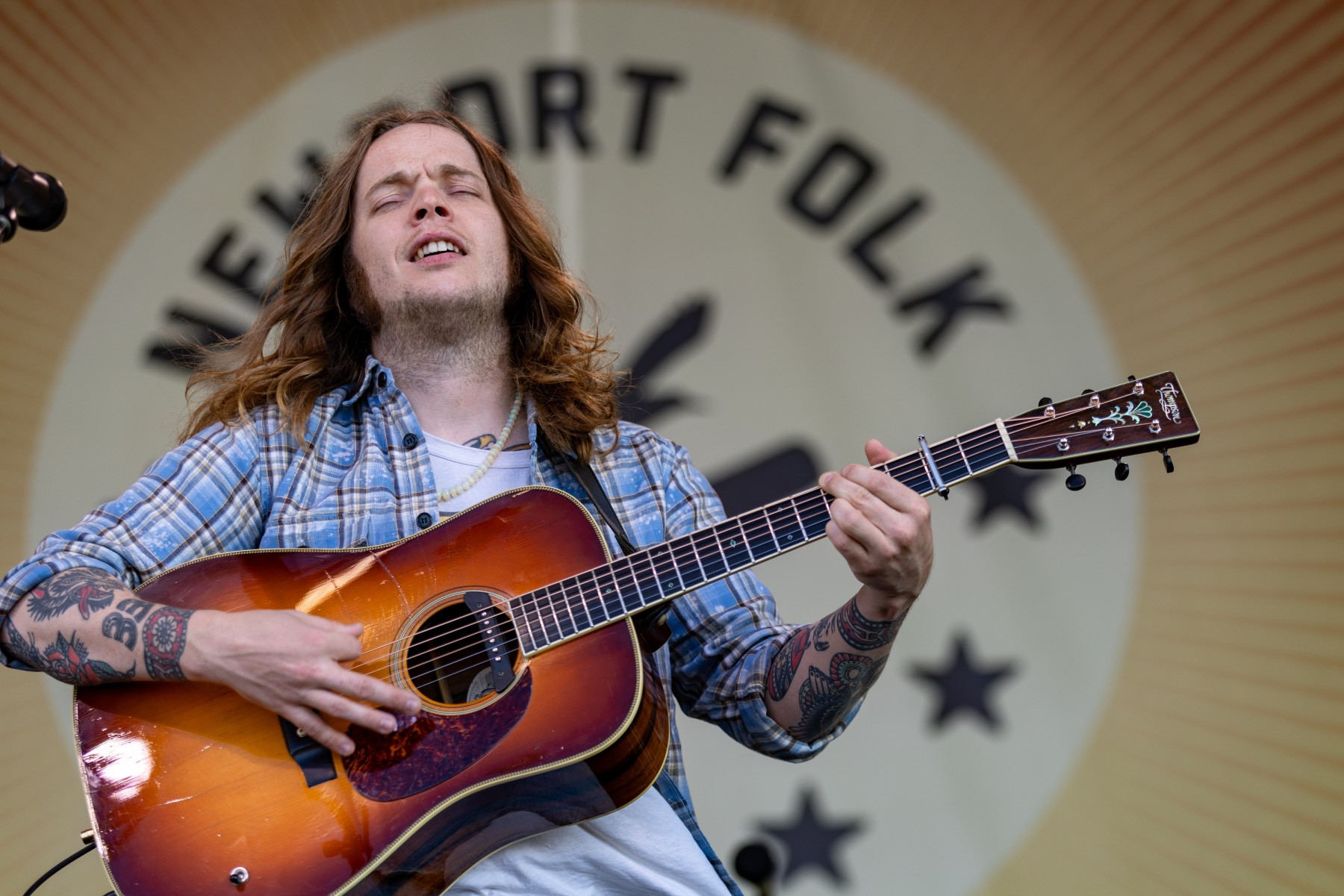 Billy Strings
Billy Strings
Image Credit: Douglas Mason/Getty
While many self-proclaimed outlaw country artists have questionable “outlaw” credentials, bluegrass virtuoso Billy Strings delivers raw, authentic, and law-breaking truth in “Dust in a Baggie.” This high-energy track tells a tale of methamphetamine addiction loosely based on a family friend. Alongside furious picking, the song is anchored by an irresistibly catchy chorus: “I used my only phone call to contact my Daddy/I got 20 long years for some dust in a baggie.” Fortunately, Strings himself avoided incarceration, finding sobriety instead. “Dust in a Baggie” is a raw and powerful classic country song that blends bluegrass instrumentation with stark realism.
Darius Rucker, ‘Don’t Think I Don’t Think About It’
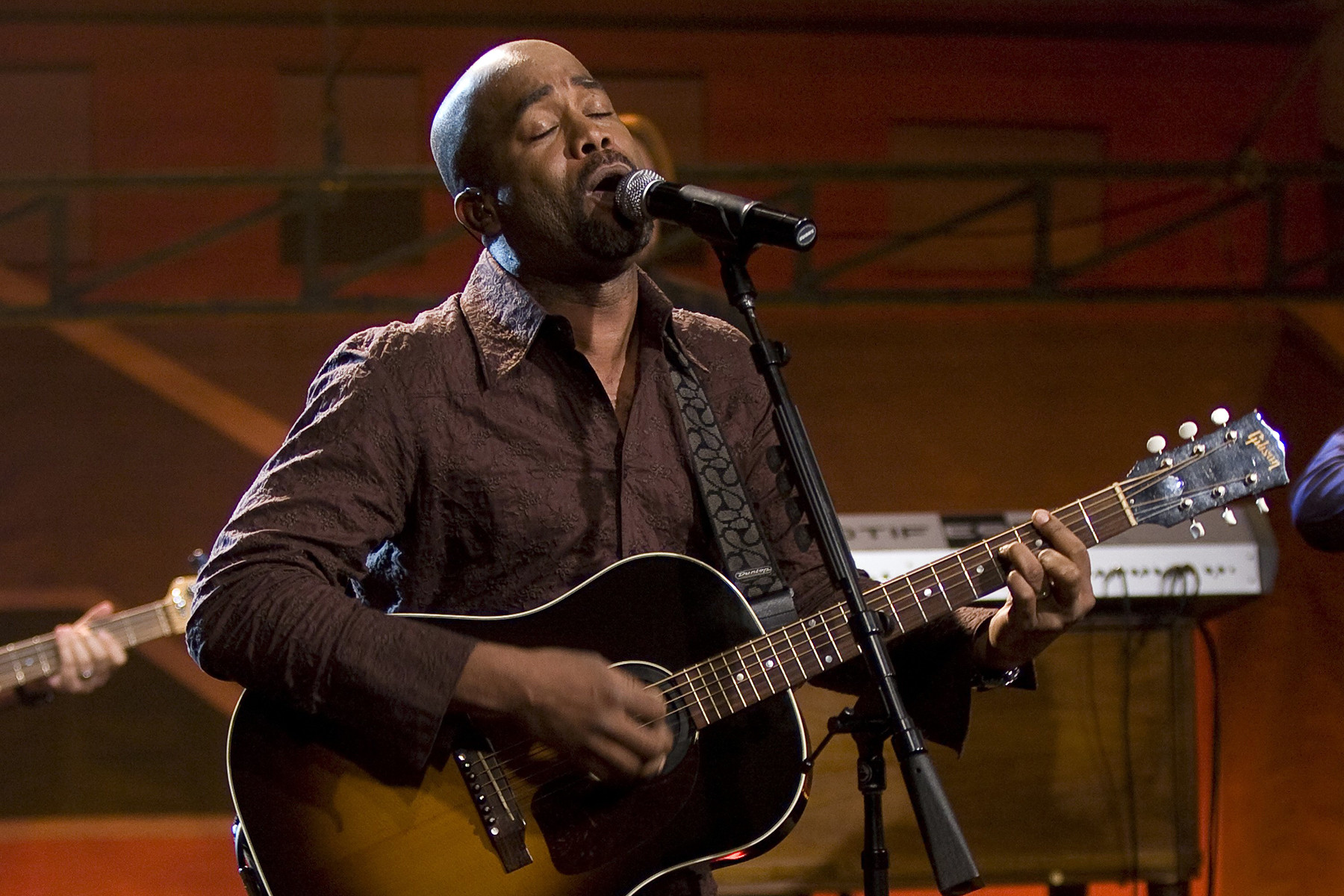 THE TONIGHT SHOW WITH JAY LENO — Darius Rucker — Air Date 10/27/2008 — Episode 3644 — Pictured: Musical guest Darius Rucker performs on October 27, 2008 — Photo by: Paul Drinkwater/NBCU Photo Bank
THE TONIGHT SHOW WITH JAY LENO — Darius Rucker — Air Date 10/27/2008 — Episode 3644 — Pictured: Musical guest Darius Rucker performs on October 27, 2008 — Photo by: Paul Drinkwater/NBCU Photo Bank
Image Credit: Paul Drinkwater/NBCU Photo Bank/NBCUniversal/Getty Images
Darius Rucker’s solo country success wasn’t guaranteed, despite Hootie & the Blowfish’s widespread influence. However, his 2008 solo debut was undeniably successful, featuring “Don’t Think I Don’t Think About It,” a mature country anthem exploring the enduring question of “what if?” after a past relationship. The song resonated deeply, reaching Number One on the country chart and making Rucker the first Black artist to achieve this since Ray Charles’s duet with Willie Nelson in 1985. “Don’t Think I Don’t Think About It” marked Rucker’s successful transition into country and became a classic country song of reflection and nostalgia.
Jimmie Davis, ‘You Are My Sunshine’
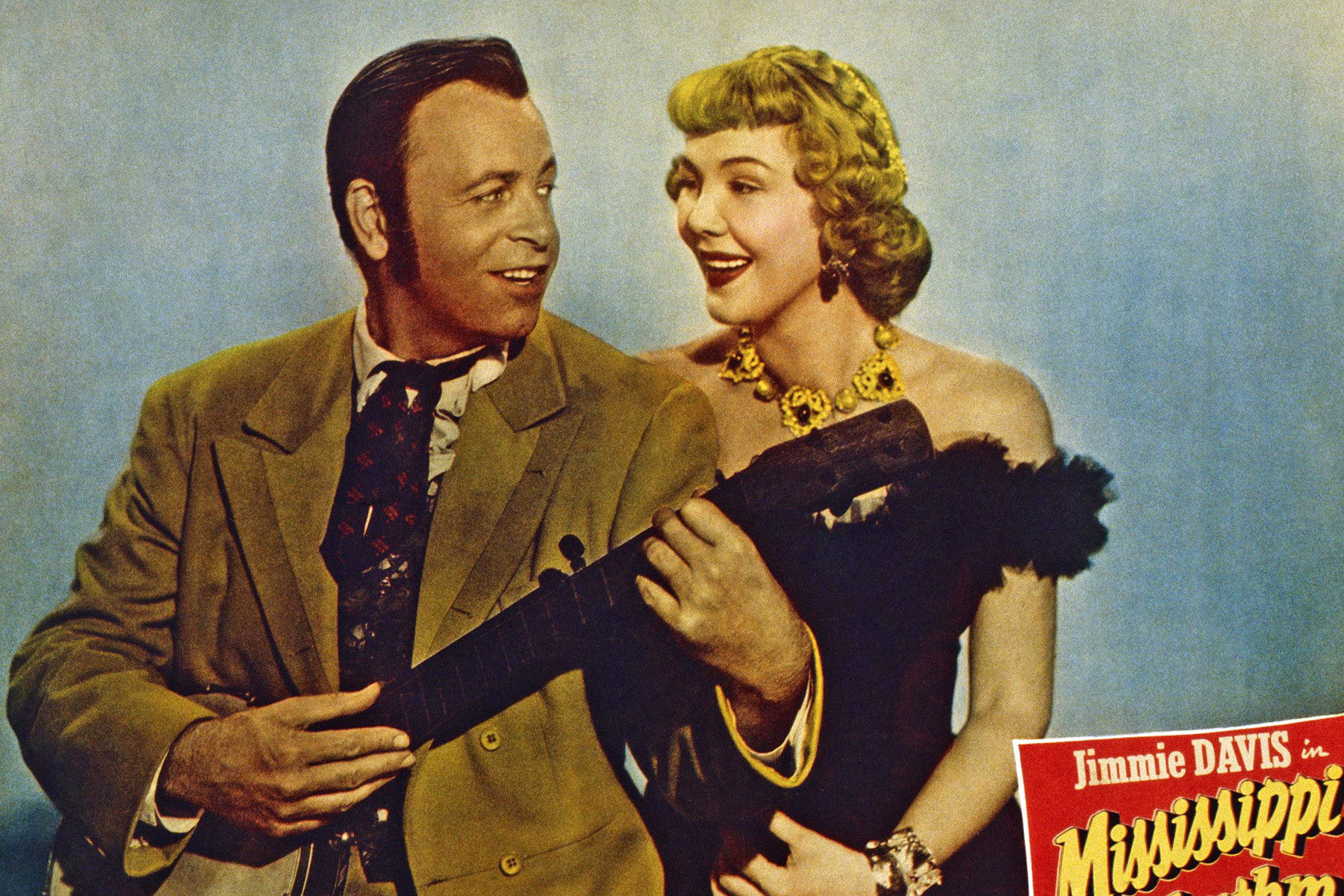 Mississippi Rhythm, US lobbycard, from Left: Jimmie Davis, Veda Ann Borg, 1949. (Photo by LMPC via Getty Images)
Mississippi Rhythm, US lobbycard, from Left: Jimmie Davis, Veda Ann Borg, 1949. (Photo by LMPC via Getty Images)
Image Credit: LMPC/Getty Images
George Jones considered “You Are My Sunshine” the most perfect song ever written. Alongside “Happy Birthday to You” and “White Christmas,” it’s one of the most globally recognized songs. While countless versions exist, Jimmie Davis’s original 1940 recording remains the most beloved. Despite its seemingly cheerful title, “Sunshine” has melancholic lyrics and a complex, uncertain authorship. Davis’s own story is equally complex: he led one of country music’s first racially integrated bands but later adopted a segregationist stance as a two-term governor of Louisiana. The enduring popularity of “You Are My Sunshine,” however, remains universally appealing, with hit versions by artists from Bing Crosby to Aretha Franklin, solidifying its status as an enduring and classic country song.
Jo Dee Messina, ‘Heads Carolina, Tails California’
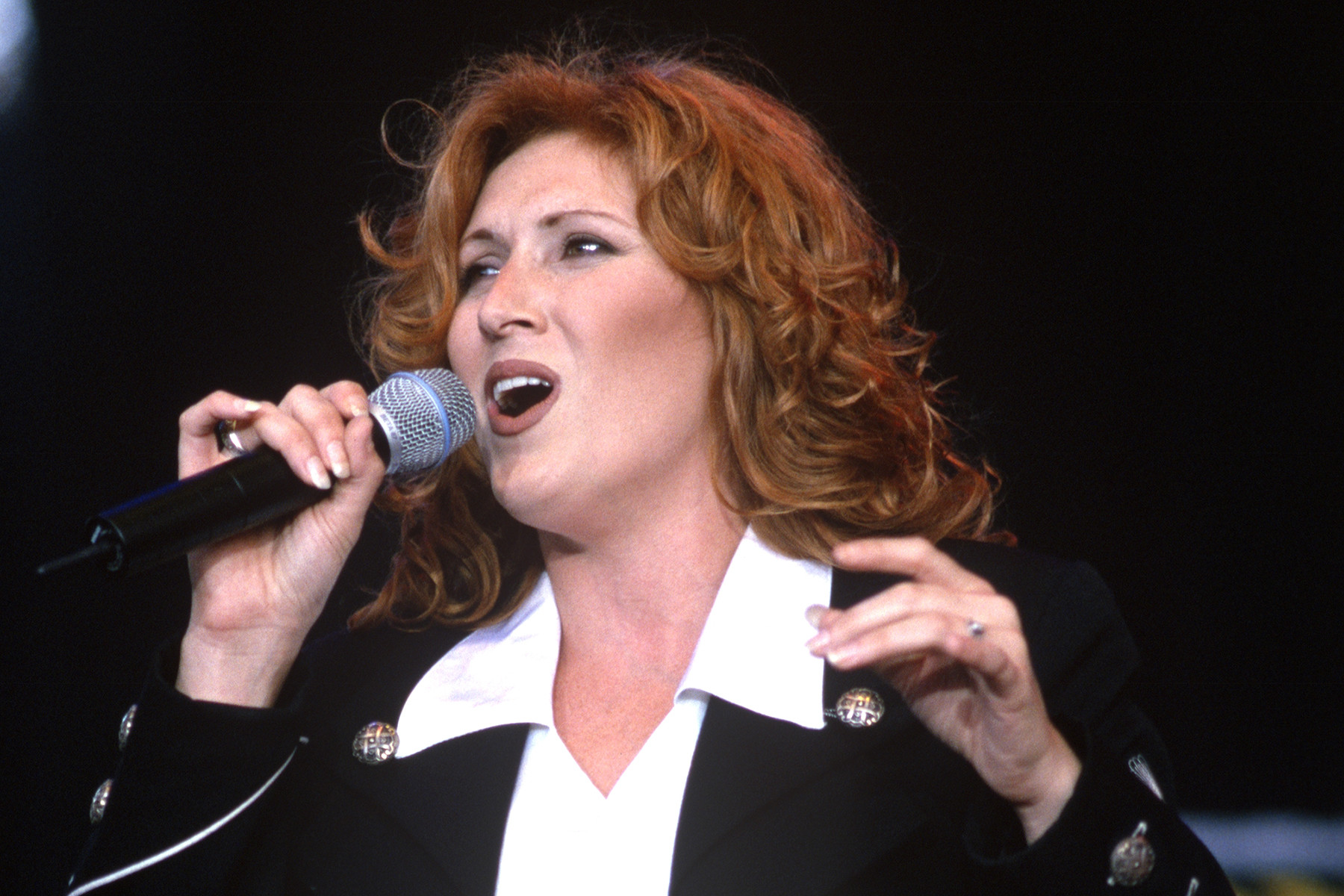 Jo Dee Messina performs at Shoreline Amphitheatre on October 4, 1997 in Mountain View, California. (Photo by Tim Mosenfelder/Getty Images)
Jo Dee Messina performs at Shoreline Amphitheatre on October 4, 1997 in Mountain View, California. (Photo by Tim Mosenfelder/Getty Images)
Image Credit: Tim Mosenfelder/Getty Images
“Can we change ‘Austin’ to ‘Boston’?” Jo Dee Messina asked songwriters Tim Nichols and Mark Sanders before recording “Heads Carolina, Tails California” for her debut album. “’Cause I really do have people in Boston!” Born in Framingham, Massachusetts, Messina spent her early Nashville years tending bar and entering talent contests. “Heads Carolina, Tails California” launched her to stardom, its lyrics reflecting a geographical shift in country music. While California and the Carolinas were early centers of country production, for Messina and many 90s country fans, they represented aspirational destinations. “Heads Carolina, Tails California” is a quintessential classic country song of 90s country that captured a sense of wanderlust and possibility.
Linda Ronstadt, ‘Long Long Time’
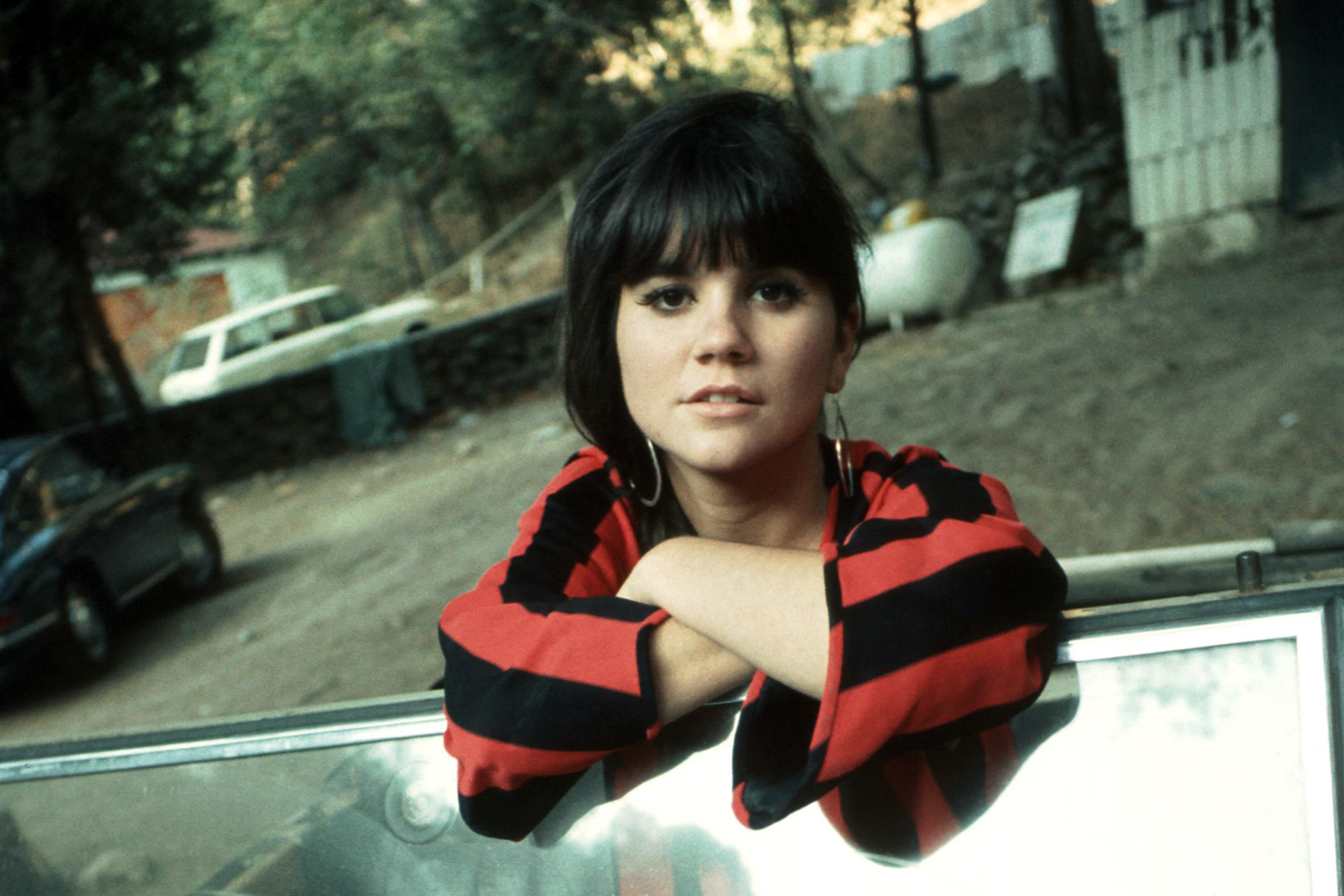 UNSPECIFIED – CIRCA 1970: Photo of Linda Ronstadt (Photo by Michael Ochs Archives/Getty Images)
UNSPECIFIED – CIRCA 1970: Photo of Linda Ronstadt (Photo by Michael Ochs Archives/Getty Images)
Image Credit: Michael Ochs Archives/Getty Images
Linda Ronstadt famously declared, “I hate that album,” referring to her 1970 country LP Silk Purse. “I couldn’t sing then; I didn’t know what I was doing.” However, she made an exception for “Long Long Time.” Written by Gary White, this heart-wrenching tale of unrequited love showcased her remarkable vocal range. Listeners had previously heard Ronstadt’s enchanting cover of Michael Nesmith’s “Different Drum” with the Stone Poneys, but “Long Long Time” became her proper introduction as a powerhouse vocalist. It was her first solo single to chart and earned her first Grammy nomination. Decades later, in 2023, its appearance on HBO’s The Last of Us brought it back into the public consciousness, reaffirming its status as a timeless and classic country song.
Sugarland, ‘Baby Girl’
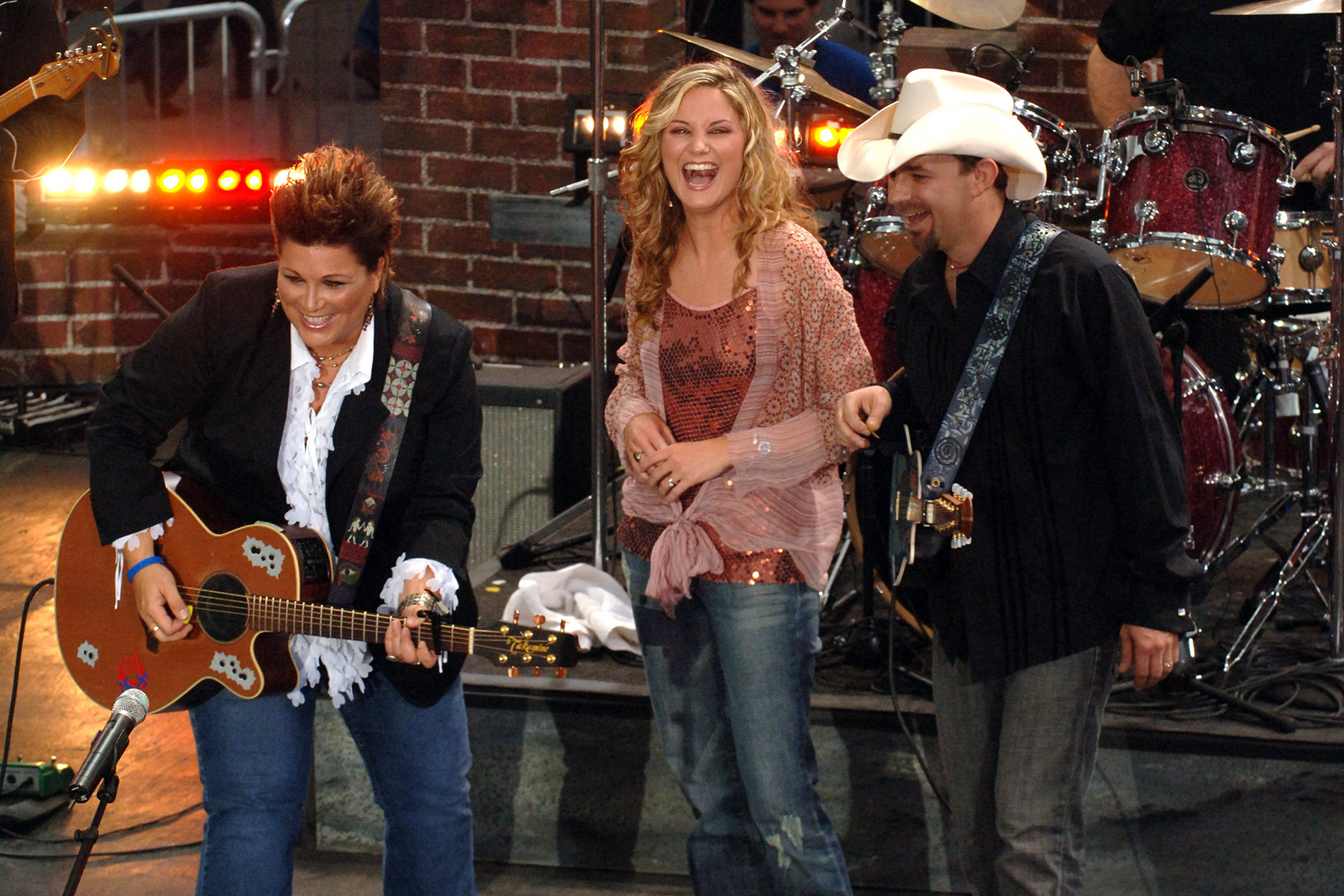 Sugarland during 2005 CMT Music Awards – Pre-Party at Outside Gaylord Entertainment Center in Nashville, Tennessee, United States. (Photo by R. Diamond/WireImage)
Sugarland during 2005 CMT Music Awards – Pre-Party at Outside Gaylord Entertainment Center in Nashville, Tennessee, United States. (Photo by R. Diamond/WireImage)
Image Credit: Rick Diamond/WireImage
Country music often celebrates stories of underdogs achieving success. Sugarland’s 2004 debut, “Baby Girl,” is precisely that kind of story, narrating their own journey to making it in country music. With its bright melody and crisp harmonies, the chorus reads like a letter home, perhaps requesting financial support, but Jennifer Nettles, Kristian Bush, Kristen Hall, and co-writer Troy Bieser also subtly critiqued the music industry’s cutthroat nature in the verses. “Big town full of little white lies/Everybody’s your friend, you can never be sure,” Nettles sang. “Baby Girl” served as a compelling introduction to the multi-talented Nettles and foreshadowed a path in country music that would resonate with artists like Carrie Underwood, Kelsea Ballerini, and Taylor Swift, making it a significant and classic country song of the early 2000s.
Luke Bryan, ‘Drink a Beer’
 LAS VEGAS, NV – APRIL 07: Singer Luke Bryan performs onstage during the 48th Annual Academy of Country Music Awards at the MGM Grand Garden Arena on April 7, 2013 in Las Vegas, Nevada. (Photo by Ethan Miller/Getty Images)
LAS VEGAS, NV – APRIL 07: Singer Luke Bryan performs onstage during the 48th Annual Academy of Country Music Awards at the MGM Grand Garden Arena on April 7, 2013 in Las Vegas, Nevada. (Photo by Ethan Miller/Getty Images)
Image Credit: Ethan Miller/Getty Images
Initially appearing to be another tailgate anthem from the once-crowned king of spring break, “Drink a Beer” profoundly moves listeners with its story of honoring someone lost too soon. Bryan delivers the song with tragic authenticity, drawing from his personal experiences of losing both his brother and sister young. His lingering grief permeates the song, written by Chris Stapleton and Jim Beavers. Bryan’s performance of “Drink a Beer” at the 2013 CMA Awards, with a then-unknown Stapleton backing him, was emotionally charged. However, the studio version stands as Bryan’s peak achievement, a rare moment of palpable sorrow from an artist often associated with lightheartedness, making “Drink a Beer” a surprisingly poignant and classic country song in his repertoire.
Brenda Lee, ‘I’m Sorry’
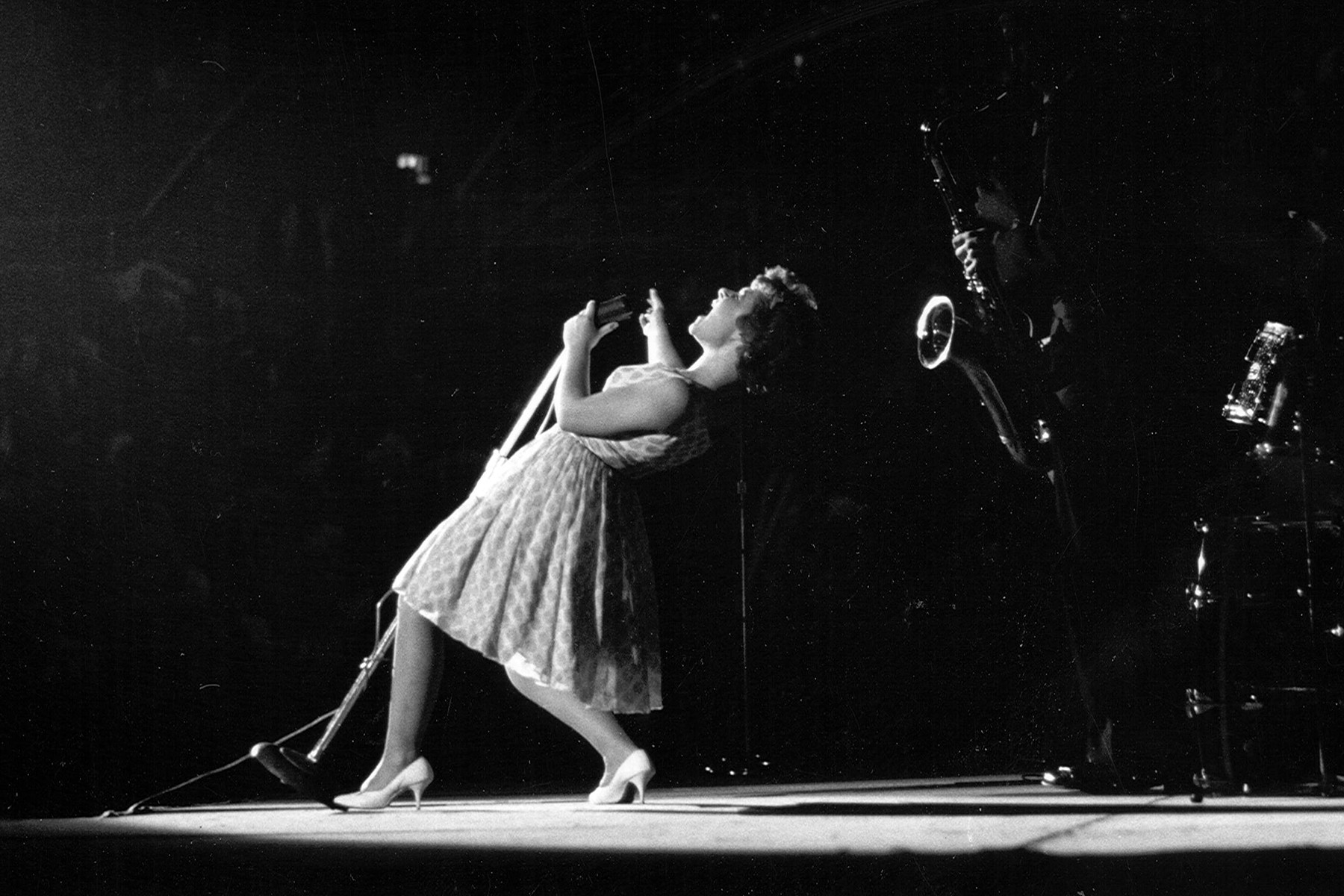 NOVEMBER 1960: Singer Brenda Lee performs in concert in November 1960. (Photo by Michael Ochs Archives/Getty Images)
NOVEMBER 1960: Singer Brenda Lee performs in concert in November 1960. (Photo by Michael Ochs Archives/Getty Images)
Image Credit: Michael Ochs Archives/Getty Images
Brenda Lee, the first woman inducted into both the country and rock and roll halls of fame, was only 15 when she recorded “I’m Sorry” with producer Owen Bradley, the Anita Kerr Singers, and studio musicians known as the A-Team. A pop Number One that never charted on the country countdown, “I’m Sorry” is both a prime example of the Nashville sound and a reminder that genre distinctions are often arbitrary. The recording is enigmatic: how did Lee convey such profound emotional depth at such a young age? Her repeated apologies and pleas for forgiveness raise questions: What did she do? Will she ever forgive herself? “I’m Sorry” remains a timeless and classic country song of youthful heartbreak and regret.
Margo Price, ‘Hurtin’ (on the Bottle)’
 AUSTIN, TX – MARCH 16: Margo Price performs onstage at NPR Music during the 2016 SXSW Music, Film + Interactive Festival at Stubbs on March 16, 2016 in Austin, Texas. (Photo by Waytao Shing/Getty Images for SXSW)
AUSTIN, TX – MARCH 16: Margo Price performs onstage at NPR Music during the 2016 SXSW Music, Film + Interactive Festival at Stubbs on March 16, 2016 in Austin, Texas. (Photo by Waytao Shing/Getty Images for SXSW)
Image Credit: Waytao Shing/Getty Images
The recipe for a great country song? Perhaps hanging out with friends on a porch and sharing a bottle of Bulleit Rye. Margo Price co-wrote “Hurtin’ (on the Bottle)” one evening with her husband, Jeremy Ivey, along with Caitlin Rose and Mark Fredson. It was released on her 2016 debut, Midwest Farmer’s Daughter. It remains her most popular song, a swinging anthem about whiskey and heartbreak. Although Price has since become sober, she still enjoys performing “Hurtin’ (on the Bottle).” As she told Rolling Stone, “Jeremy was like, ‘You don’t even drink anymore. Do you want to play any drinking song? Do you even think that that connects with you?’ I was like, ‘It fucking resonates with me now more than ever.’” “Hurtin’ (on the Bottle)” is a spirited and classic country song about coping with pain, even after moving past the source of that pain.
Brandy Clark, ‘Pray to Jesus’
 NASHVILLE, TN – NOVEMBER 05: Brandy Clark performs during the 2013 CMA Songwriters Series at the CMA Theater on November 5, 2013 in Nashville, Tennessee. (Photo by Terry Wyatt/Getty Images)
NASHVILLE, TN – NOVEMBER 05: Brandy Clark performs during the 2013 CMA Songwriters Series at the CMA Theater on November 5, 2013 in Nashville, Tennessee. (Photo by Terry Wyatt/Getty Images)
Image Credit: Terry Wyatt/Getty Images
Brandy Clark was already a sought-after Nashville songwriter when “Pray to Jesus,” the opening track of her solo debut, 12 Stories, introduced her as a singer-songwriter of significant depth. Sung from the perspective of people who “pray to Jesus” and “play the lotto” because “there ain’t but two ways/We can change tomorrow,” it’s a character study that initially might sound condescending. However, as the details accumulate, its knowing empathy becomes apparent. Clark’s skillful wordplay—funny, wise, poignant, and tinged with pain—has taken her and frequent collaborator Shane McAnally to Broadway with their work on the musical Shucked. “Pray to Jesus” is a subtly powerful and classic country song that offers a nuanced portrayal of faith and everyday life.
Tony Joe White, ‘Polk Salad Annie’
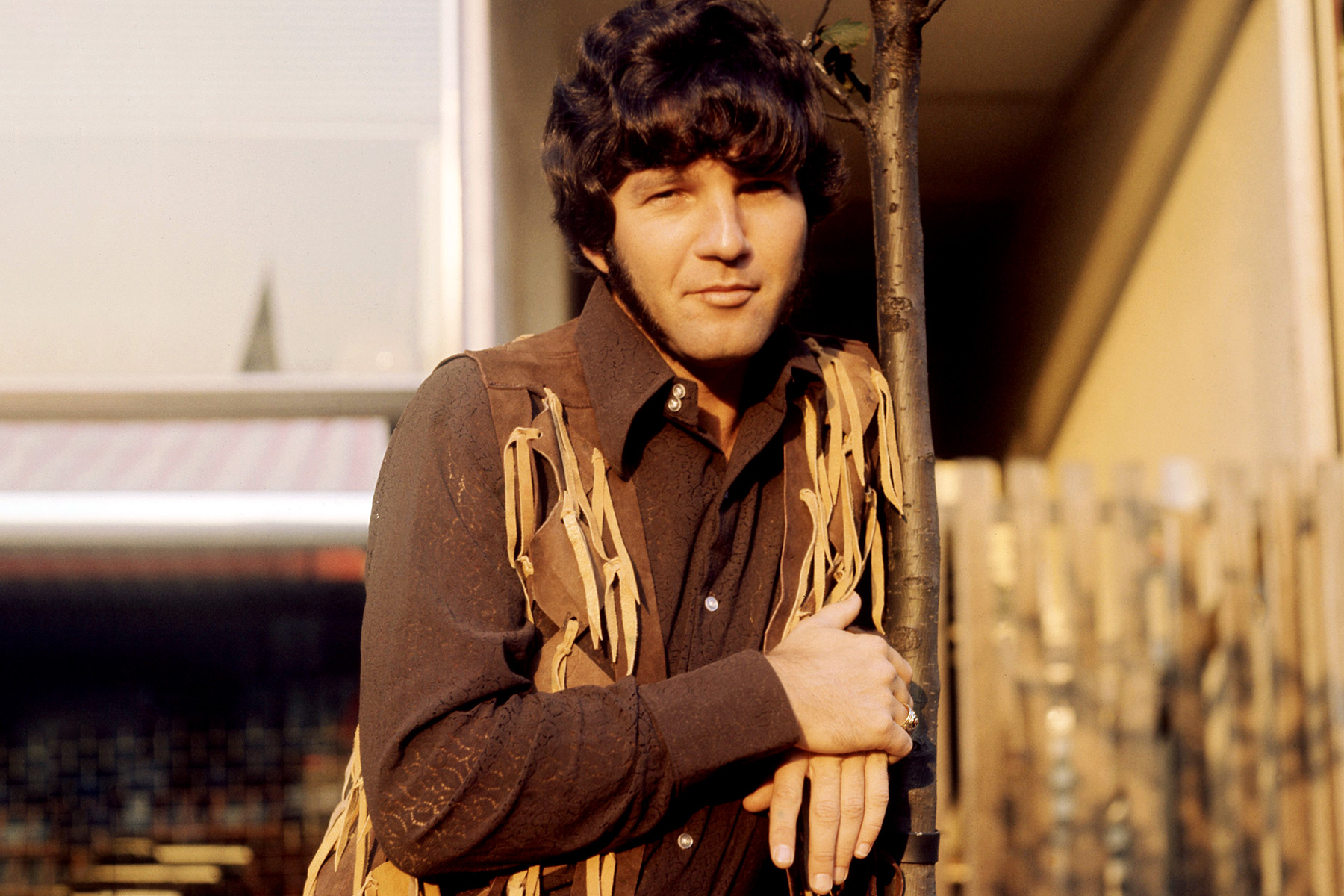 American singer-songwriter Tony Joe White (1943 – 2018) poses for a portrait in London, England, August 25, 1970. (Photo by TPLP/Getty Images)
American singer-songwriter Tony Joe White (1943 – 2018) poses for a portrait in London, England, August 25, 1970. (Photo by TPLP/Getty Images)
Image Credit: TPLP/Getty Images
Louisiana native Tony Joe White begins “Polk Salad Annie” by defining “polk salad” for those “never been down South too much.” He spends much of the song describing Annie’s tough upbringing, with a chain-gang-working mother, no-count father, and alligator-devoured grandmother (“chomp, chomp”). Yet, fundamentally, it’s a love song—evident in White’s guttural grunts, suggestive guitar licks, and the raw groove as he recalls the wild child Annie. Recorded with the original Muscle Shoals rhythm section after they relocated to Nashville, “Polk Salad Annie” was an early example of country funk. Decades later, it remains a uniquely funky and classic country song with its swampy groove and vivid storytelling.
Wanda Jackson, ‘Hot Dog! That Made Him Mad’
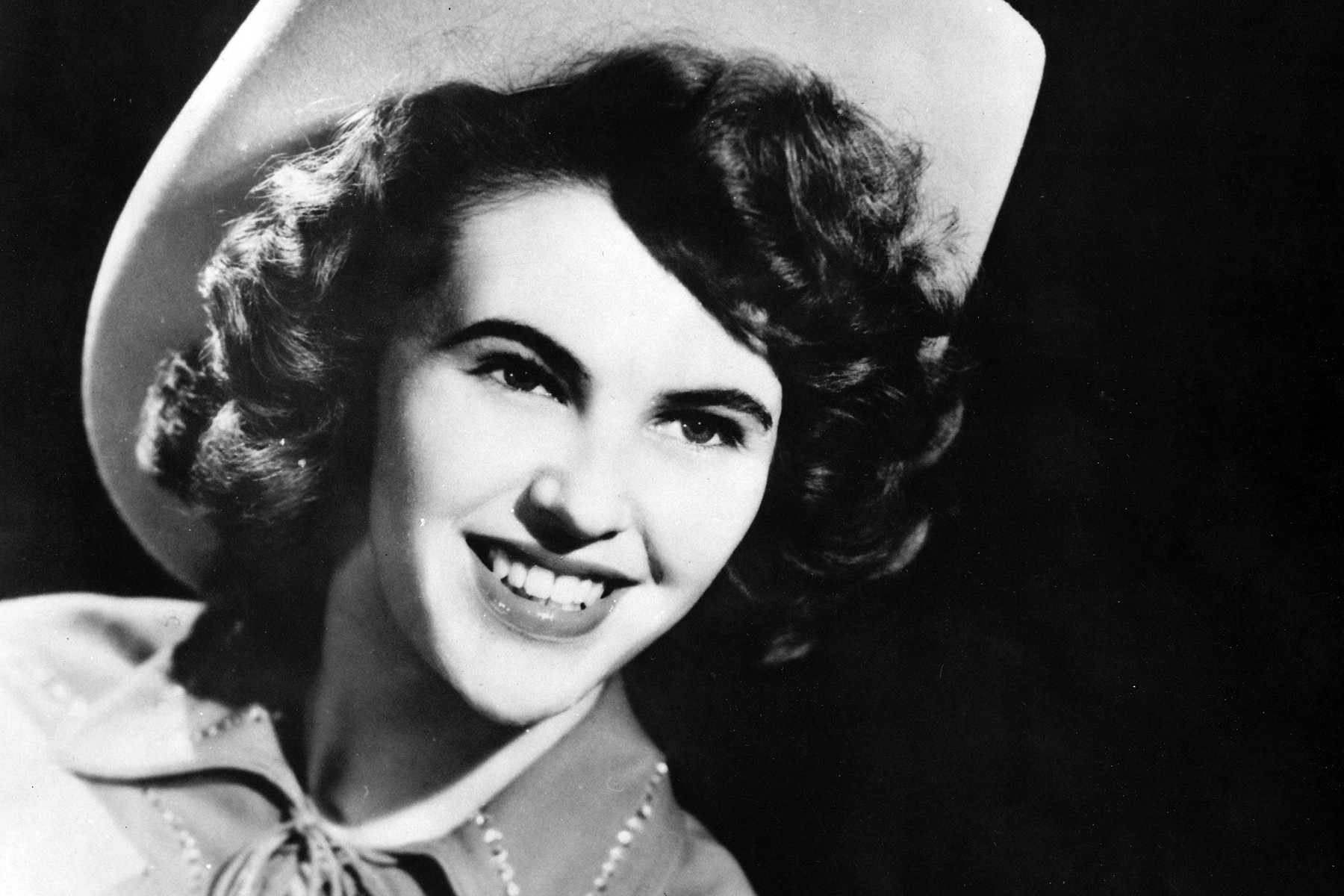 Wanda Jackson poses for a studio portrait in 1958 in the United States. (Photo by Gilles Petard/Redferns)
Wanda Jackson poses for a studio portrait in 1958 in the United States. (Photo by Gilles Petard/Redferns)
Image Credit: Gilles Petard/Redferns/Getty Images
Wanda Jackson sang with a feral, aggressively sexual growl, embodying a danger-girl persona born to raise hell. The Oklahoma firecracker earned her title as the Queen of Rockabilly in the 1950s. Discovered by her idol Hank Thompson and touring with Elvis Presley, Jackson belted out a string of libidinally charged tunes like “Fujiiyama Mama,” “Funnel of Love,” and “Tongue Tied.” Her ultimate classic country song is arguably the 1956 single “Hot Dog! That Made Him Mad,” a feminist guitar anthem where Jackson revels in the erotic thrill of tormenting men. She defined the rebellious spirit of female rockabilly pioneers like Janis Martin and the Collins Kids. Even after later turning to gospel, she reunited with fan Jack White for her unapologetic 2011 comeback album, The Party Ain’t Over.
Hank Snow, ‘I’m Moving On’
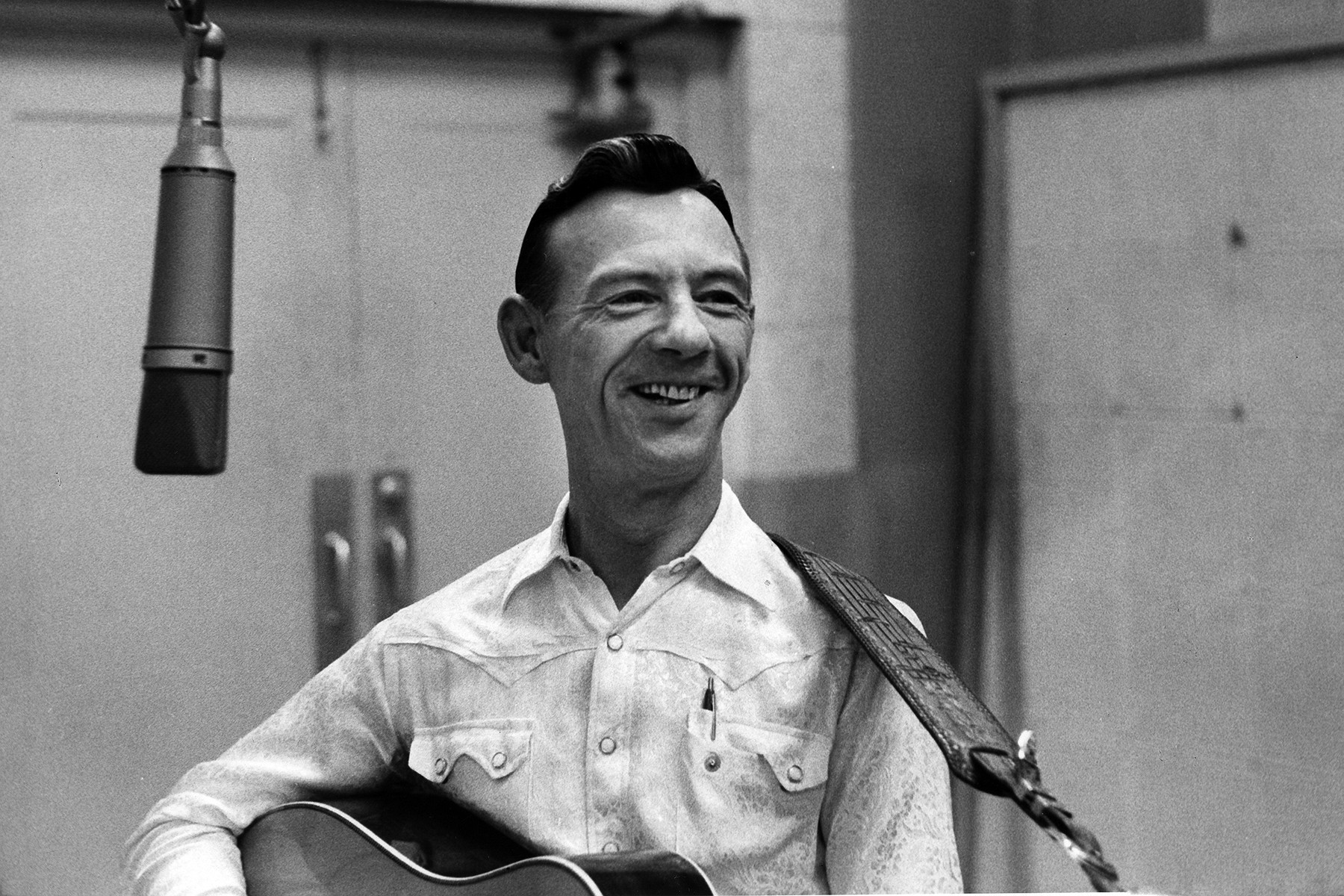 UNSPECIFIED – CIRCA 1970: Photo of Snow Hank Photo by Michael Ochs Archives/Getty Images
UNSPECIFIED – CIRCA 1970: Photo of Snow Hank Photo by Michael Ochs Archives/Getty Images
Image Credit: Michael Ochs Archives/Getty Images
Hank Snow delivers “I’m Moving On” with his signature nasal and meticulously enunciated twang. He sings of catching a train south to escape a “pretty mama” who wronged him. However, the song’s remarkable 21-week reign atop the country chart likely owes as much to his band’s driving rhythm—its train-track sway, lonesome steel guitar, and Snow’s own hot flat-picked lead. “I’m Movin’ On” represented state-of-the-art country & western in the mid-20th century, and even now, it sounds as dynamic and compelling as ever. It remains a foundational and classic country song of heartbreak and resilience.
The Band Perry, ‘If I Die Young’
 MANHATTAN, KS – JUNE 26: ***EXCLUSIVE COVERAGE*** The Band Perry, Neil Perry, Kimberly Perry and Reid Perry demostrate writing a song backstage on there bus during the 2010 Country Stampede music festival at Tuttle Creek State Park on June 26, 2010 in Manhattan, Kansas. (Photo by Rick Diamond/Getty Images)
MANHATTAN, KS – JUNE 26: ***EXCLUSIVE COVERAGE*** The Band Perry, Neil Perry, Kimberly Perry and Reid Perry demostrate writing a song backstage on there bus during the 2010 Country Stampede music festival at Tuttle Creek State Park on June 26, 2010 in Manhattan, Kansas. (Photo by Rick Diamond/Getty Images)
Image Credit: Rick Diamond/Getty Images
This 2010 breakout single from The Band Perry’s debut album goes beyond the idea of living fast, directly confronting dying young. Written by lead singer Kimberly Perry, “If I Die Young” is unparalleled in its poignant depiction of a life cut short, centered on the vivid image of “the sharp knife of a short life.” Certified seven-times platinum, it’s the sibling trio’s biggest hit and has had a significant pop culture impact, featured on American Idol and Glee. On Glee, it was poignantly covered by Naya Rivera in honor of Cory Monteith, who died young in 2013. Tragically, Rivera herself also died young in 2020, leading to a resurgence in the song’s popularity. “If I Die Young” is a deeply affecting and classic country song about mortality and legacy.
Dave Dudley, ‘Six Days on the Road’
 UNSPECIFIED – CIRCA 1970: Photo of Dave Dudley Photo by Michael Ochs Archives/Getty Images
UNSPECIFIED – CIRCA 1970: Photo of Dave Dudley Photo by Michael Ochs Archives/Getty Images
Image Credit: Michael Ochs Archives/Getty Images
Before “White Line Fever,” “Convoy,” or “East Bound and Down,” there was “Six Days on the Road,” the song that forever linked country music’s hardworking, blue-collar image to the world of trucking. While not the first trucking song, “Six Days” masterfully captured the loneliness, monotony, demands, and details of truck driver life. Dave Dudley told The All-American Truck Stop Cookbook authors, “I think it was one of those songs that truck drivers in those days were waiting for. They were kind of like outlaws back then. After that song came out, I got letters from those guys saying thank you for taking the load off our back. It kind of helped change their image to knights of the road.” “Six Days on the Road” is a seminal and classic country song that celebrates the trucking profession and blue-collar identity.
David Allan Coe, ‘You Never Even Called Me by My Name’
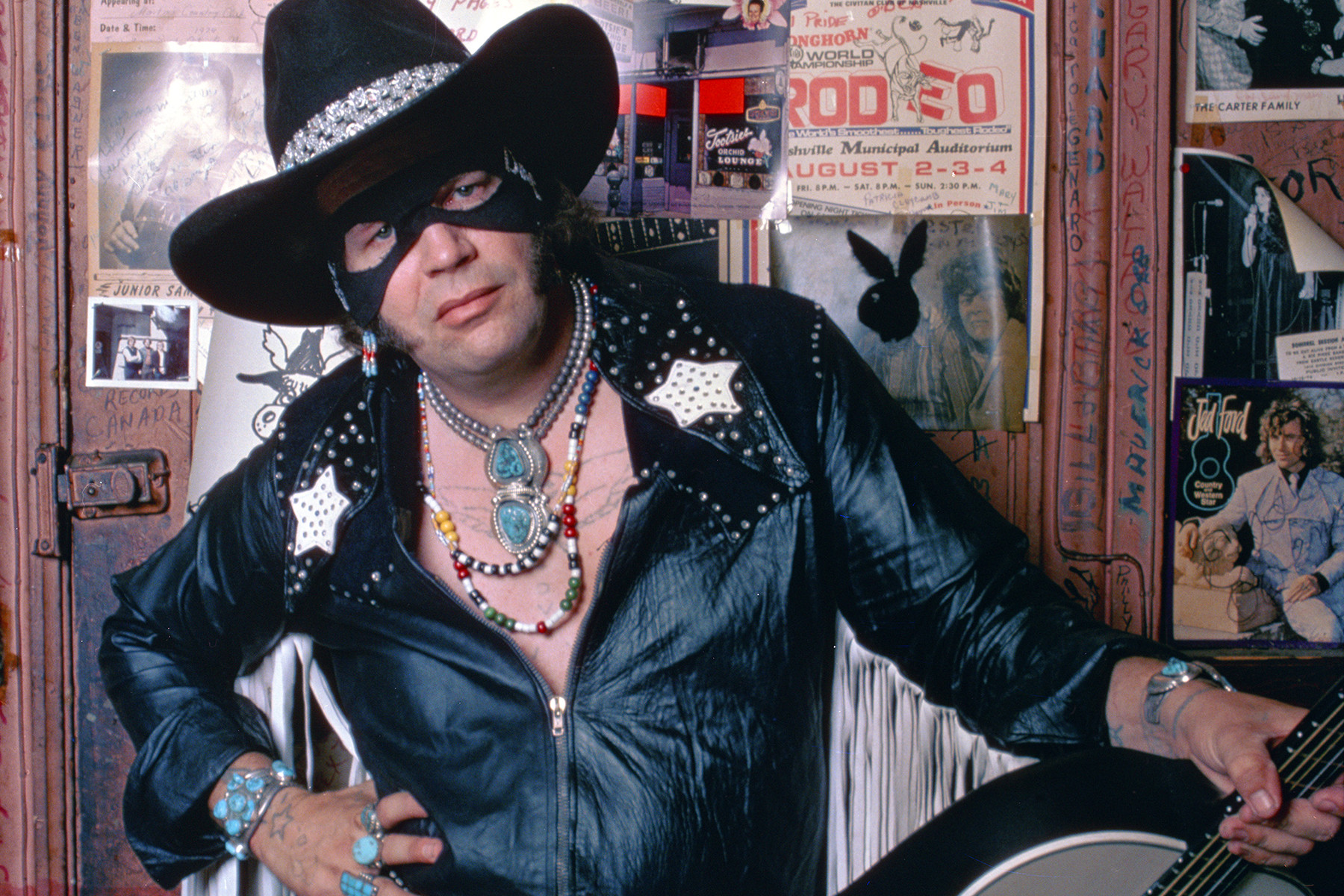 Musician, singer, song writer, entertainer and country music legend, David Allan Coe with guitar dressed as The Mysterious Rhinestone Cowboy for the cover of The New York magazine in August 1975. Photographed waist up at Tootsie
Musician, singer, song writer, entertainer and country music legend, David Allan Coe with guitar dressed as The Mysterious Rhinestone Cowboy for the cover of The New York magazine in August 1975. Photographed waist up at Tootsie
Image Credit: Al Clayton/Getty Images
Of all places to write “the perfect country & western song,” as the lyrics themselves claim, Paul Anka’s personal suite at the Waldorf Astoria seems highly improbable. Yet, that’s where Steve Goodman and John Prine began crafting this parody and celebration of country music clichés. Prine recalled feeling “pretty good” after raiding Anka’s liquor cabinet, “so I jumped up on the bed and acted like I had an imaginary fiddle and said, ‘But you don’t have to call me darlin’, darlin’.” Most artists might have shied away from the song’s inherent cheekiness. David Allan Coe, however, embraced it, even adding a bridge where Goodman appears as a character, intentionally layering in more clichés. “You Never Even Called Me by My Name” is a humorous and self-aware classic country song that playfully deconstructs genre tropes.
The Mavericks, ‘All You Ever Do Is Bring Me Down’
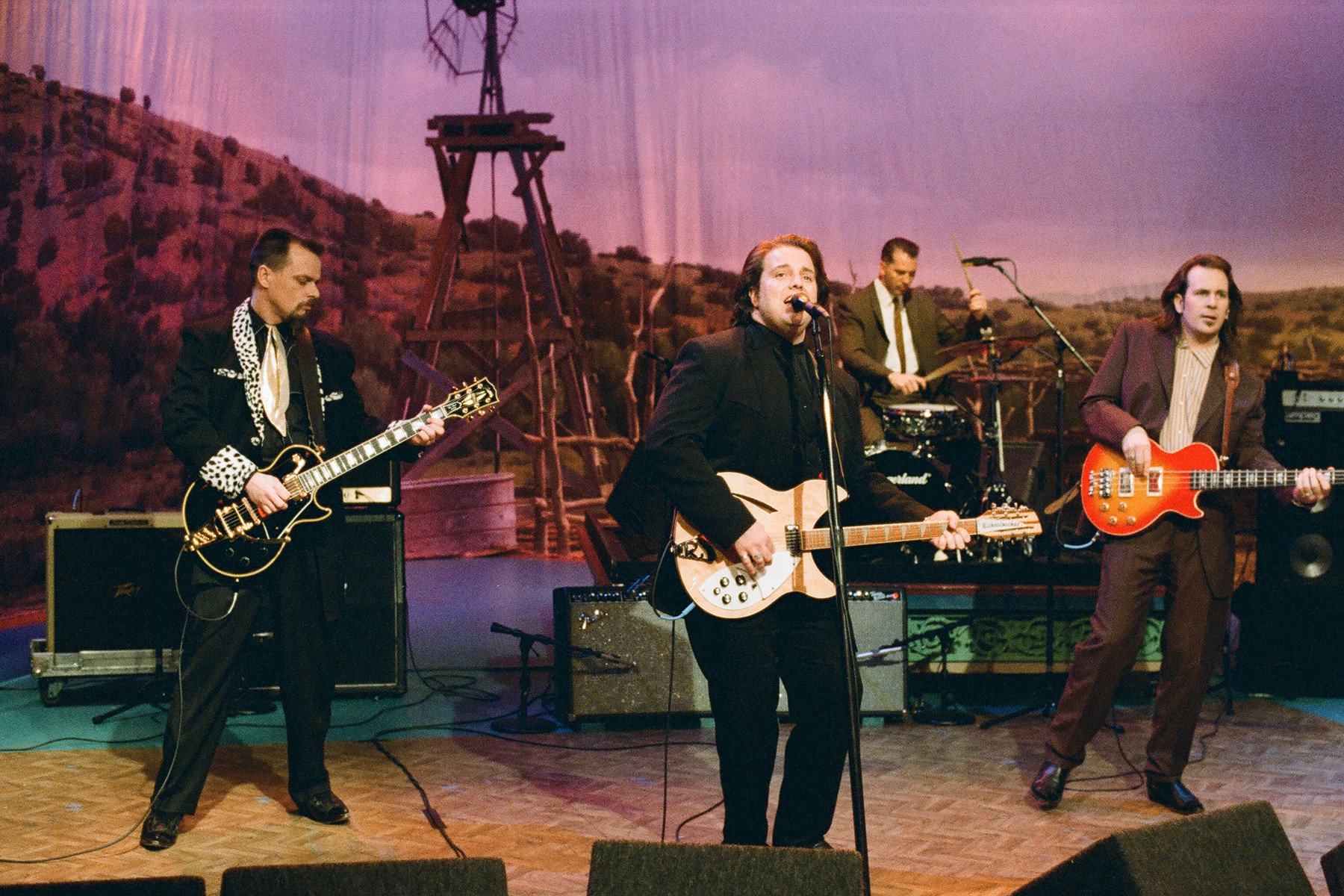 THE TONIGHT SHOW WITH JAY LENO — Episode 647 — Pictured: (l-r) Nick Kane, Raul Malo, Paul Deakin, and Robert Reynolds of musical guest The Mavericks perform on March 7, 1995 — (Photo by: Margaret Norton/NBCU Photo Bank/NBCUniversal via Getty Images via Getty Images)
THE TONIGHT SHOW WITH JAY LENO — Episode 647 — Pictured: (l-r) Nick Kane, Raul Malo, Paul Deakin, and Robert Reynolds of musical guest The Mavericks perform on March 7, 1995 — (Photo by: Margaret Norton/NBCU Photo Bank/NBCUniversal via Getty Images via Getty Images)
Image Credit: Margaret Norton/NBCU Photo Bank/NBCUniversal/Getty Images
Billboard aptly described The Mavericks’ position in mid-1990s Nashville as “unorthodox but platinum.” Their biggest hit on the Billboard country chart, reaching Number 13 in 1996, is the irresistibly lively Tex-Mex infused “All You Ever Do Is Bring Me Down.” With organ accents, insistent percussion, and Raul Malo’s charismatic tenor, the song is pure energy. It’s all a setup for Flaco Jiménez’s accordion, which constantly comments on the musical action, taking center stage whenever possible. “All You Ever Do Is Bring Me Down” is a vibrant and classic country song that showcases The Mavericks’ unique blend of country and Tex-Mex influences.
Jim Reeves, ‘He’ll Have to Go’
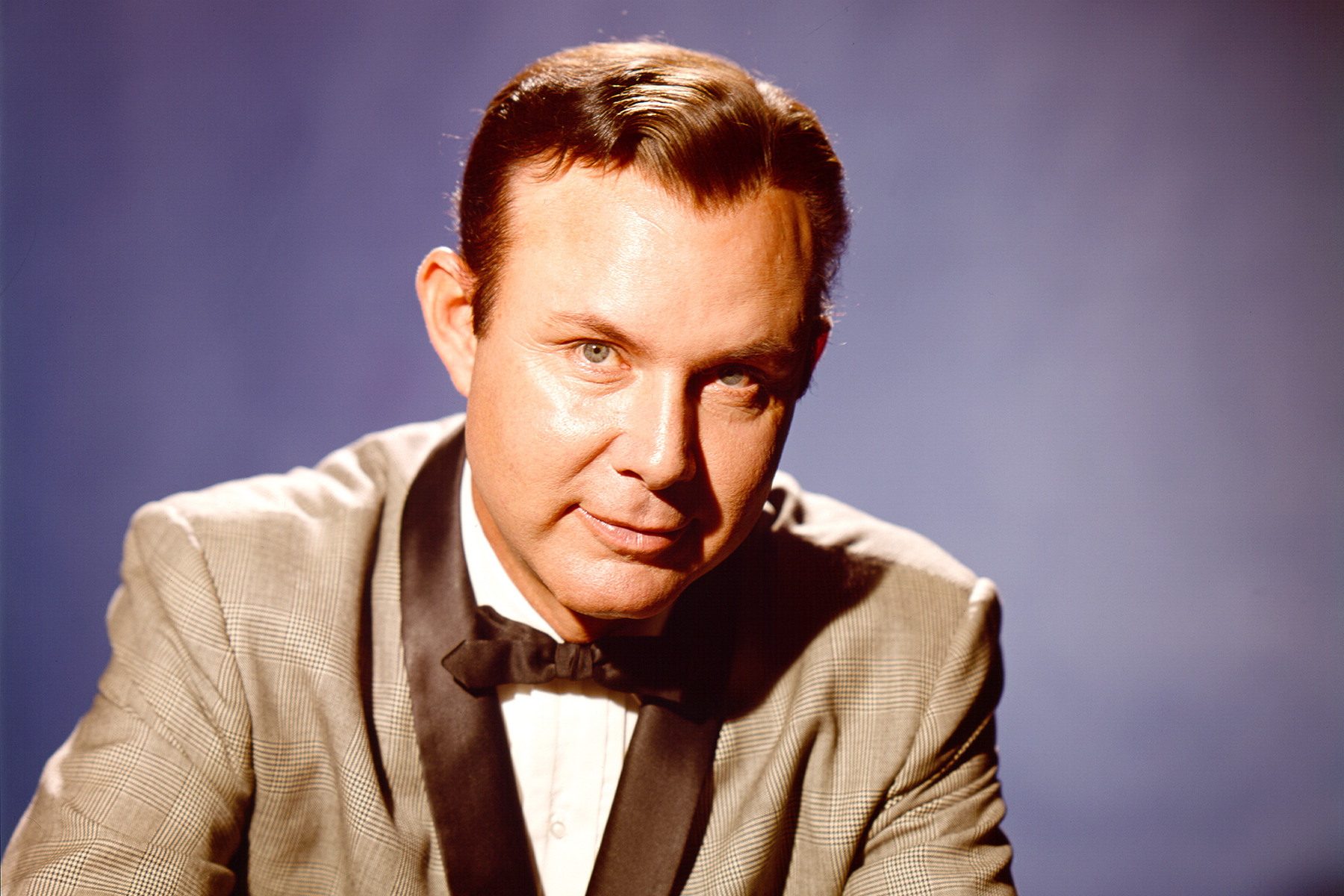 UNSPECIFIED – CIRCA 1970: Photo of Jim Reeves Photo by Michael Ochs Archives/Getty Images
UNSPECIFIED – CIRCA 1970: Photo of Jim Reeves Photo by Michael Ochs Archives/Getty Images
Image Credit: Michael Ochs Archives/Getty Images
This dreamy, romantic conversation between lovers was the biggest vocal hit of 1960. A classic example of the early Nashville sound, the vibraphone-heavy waltz intentionally mirrored an earlier arrangement by rockabilly artist Billy Brown. However, it was Jim Reeves’s deep, velvety baritone that elevated the song to iconic status. Reeves himself mused on the song’s popularity: “I can’t really tell you what the reason for that tune’s popularity was, except that I get the very pathetic picture of the old fellow standing in the telephone booth, about half plastered, talking with his girl, asking her to run the other guy off. Makes for pretty good listening though, I guess.” “He’ll Have to Go” remains a timeless and classic country song of romance and longing, defined by Reeves’s smooth vocal delivery.
Kenny Chesney, ‘The Good Stuff’
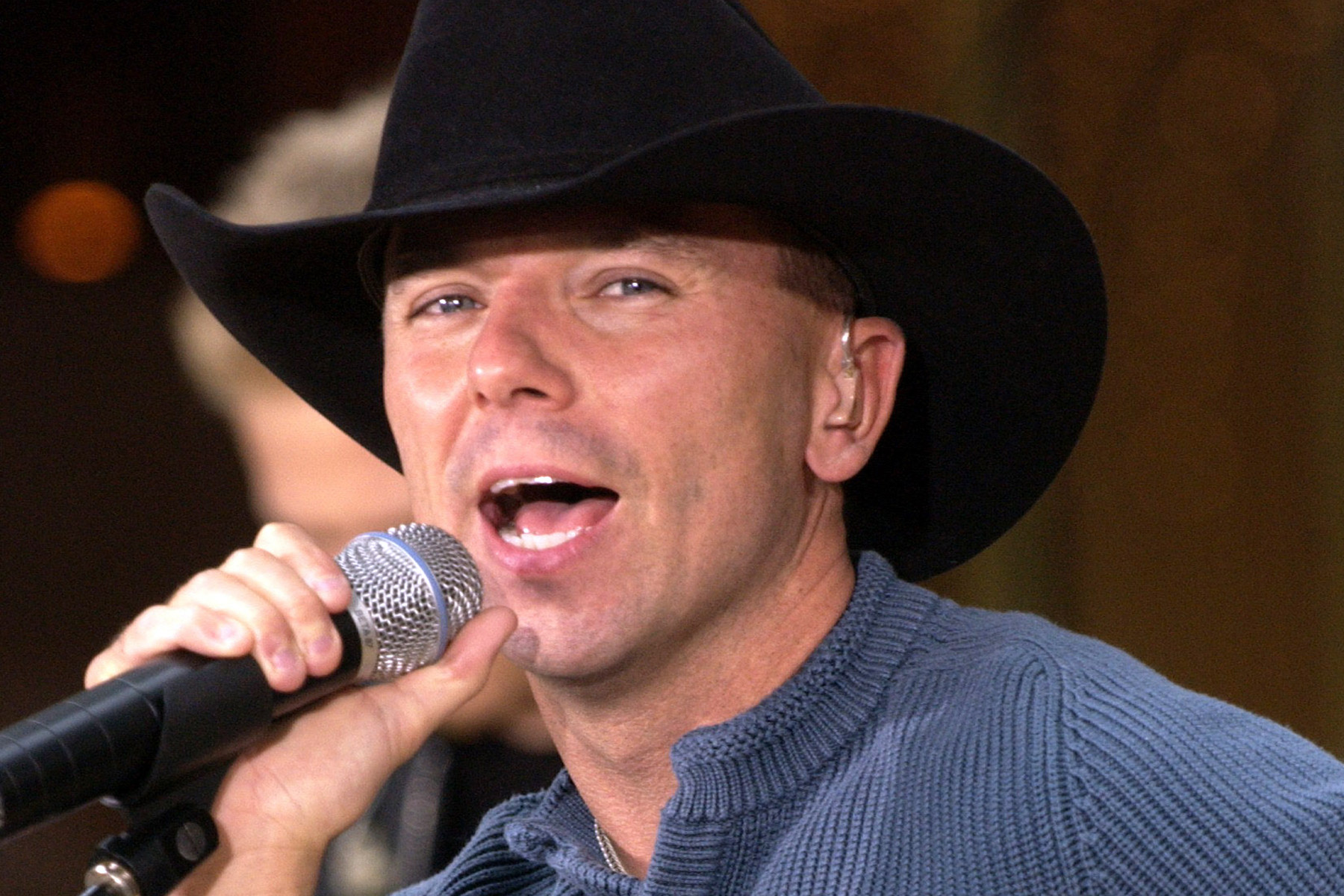 Kenny Chesney during Kenny Chesney Performs on
Kenny Chesney during Kenny Chesney Performs on
Image Credit: Debra L Rothenberg/FilmMagic
“The Good Stuff” explores multiple layers of meaning. On the surface, it could refer to a strong drink. However, it also signifies life’s meaningful moments. The song begins with a newlywed man seeking refuge in a bar after a fight, but instead of alcohol, he’s offered milk. The bartender, it’s revealed, lost his wife to cancer, and her memory is “the good stuff,” more potent than any whiskey. Songwriters Craig Wiseman and Jim Collins wrote the track after a friend lost his wife. Wiseman recalled, “We were talking about, what if you just sat there and watched your wife die? We both just sat there and were sort of stunned for a minute. We said, ‘OK, let’s get a cup of coffee and write a song!’” “The Good Stuff” is a deeply emotional and classic country song that explores grief, memory, and what truly sustains us.
Barbara Mandrell, ‘(If Loving You Is Wrong) I Don’t Want to Be Right’
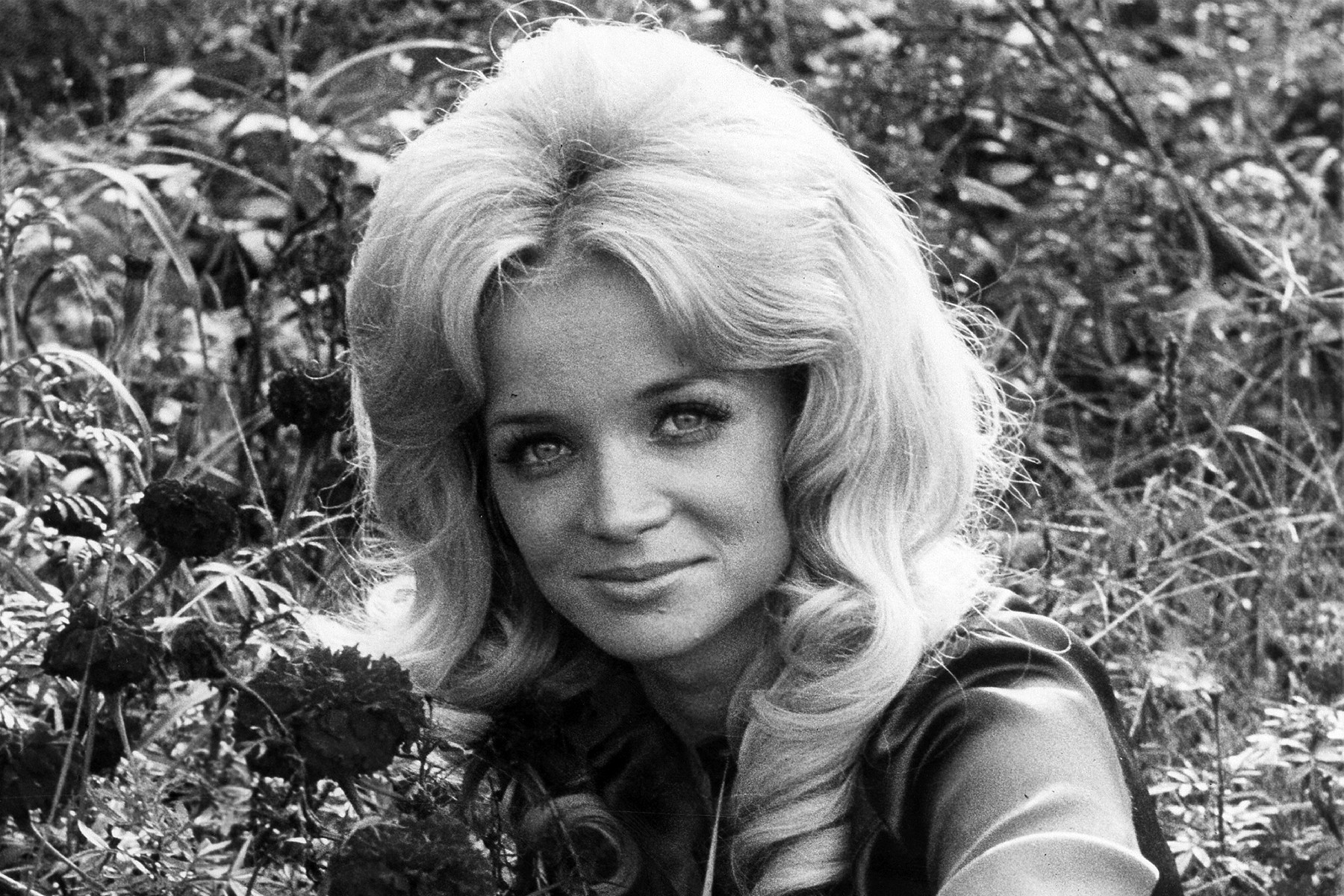 UNSPECIFIED – CIRCA 1970: Photo of Barbara Mandrell Photo by Michael Ochs Archives/Getty Images
UNSPECIFIED – CIRCA 1970: Photo of Barbara Mandrell Photo by Michael Ochs Archives/Getty Images
Image Credit: Michael Ochs Archives/Getty Images
While not country’s first foray into disco-influenced rhythms, Barbara Mandrell’s “(If Loving You Is Wrong) I Don’t Want to Be Right” is one of the era’s most successful, aside from Dolly Parton’s “Nine to Five.” Drummer Hayward Bishop incorporated disco accents while maintaining a bouncy two-step rhythm. The track’s sound leans towards Philly soul (the strings are reminiscent of Barry White) while remaining firmly rooted in Nashville. However, the song itself originated in Memphis, a 1972 soul hit for Luther Ingram on Stax Records. Barbara Mandrell, already eight albums into her career and poised for major stardom, transformed this conflicted, passionate lyric into a showstopper, both subtle and fiery. It became her biggest crossover moment, her only appearance in the Billboard pop Top 40 and a classic country song of passionate, forbidden love.
Florida Georgia Line, ‘Cruise’
Image Credit: Rick Diamond/Getty Images
There was a time when blending country and hip-hop was considered controversial, even avant-garde. “Cruise” embodied all of these descriptions and more. A high-summer love song, it expresses affection for trucks, girls, and Florida Georgia Line themselves. Like some songs on this list, it initially faced criticism for “ruining country music.” FGL’s Brian Kelley responded to “bro country” accusations on 60 Minutes, stating, “There’s no label that can really hurt our feelings.” A decade later, however, the twangy banjo in the verses almost sounds traditional, and the jacked-up Silverado in the music video even seems understated. “Cruise” became a defining and classic country song of the bro-country era, blurring genre lines and influencing contemporary country music.
Mickey Guyton, ‘Black Like Me’
Image Credit: Kevin Mazur/ACMA2020/Getty Images
Mickey Guyton embraces country music tradition while sharing her experience as a Black woman in the genre with “Black Like Me.” “If you think we live in the land of the free/You should try to be black like me,” she sang over poignant pedal steel, highlighting the R&B and Black church music elements integral to 21st-century country. The song remained unreleased until the murders of Ahmaud Arbery and George Floyd prompted her to share snippets on social media. The response was immediate and powerful. Within a year, she performed it at the Grammys—remarkably, becoming the first Black woman nominated for Best Country Solo Performance. While Guyton didn’t win, “Black Like Me” undeniably shifted the conversation around Black artists in country music, opening doors for a new generation of voices and solidifying its place as a socially significant and classic country song.
Emmylou Harris, ‘Boulder to Birmingham’
Image Credit: Gijsbert Hanekroot/Redferns/Getty Images
Emmylou Harris was on the verge of stardom and a highly sought-after singer in Nashville when she released her second album, Pieces of the Sky, in 1975. However, she was deeply grieving the loss of her singing partner, mentor, and close friend Gram Parsons, who had died from a drug overdose just over a year prior. Harris channeled her profound heartache into “Boulder to Birmingham,” which became her signature song. “Words can be so powerful to help you express something you can’t otherwise,” she later reflected. “And everyone has experienced loss.” Few, however, could articulate loss so beautifully. “Boulder to Birmingham” is a raw and honest confession of sorrow, illuminated by Harris’s ethereal soprano, establishing her as one of country music’s most unforgettable voices and the song as a timeless and classic country song of grief and remembrance.
Joe Diffie, ‘John Deere Green’
Image Credit: Tim Mosenfelder/Getty Images
Joe Diffie, an Oklahoma native, sang the quintessential small-town romance in “John Deere Green,” penned by the legendary songwriter Dennis Linde. It’s a gem of country storytelling: Billy Bob declares his love for Charlene by painting their names inside a ten-foot heart on the town’s water tower. The tractor-themed color is the detail that makes it iconic, with the hook, “The whole town said that he should’ve used red/But it looked good to Charlene, in John Deere green.” Tragically, Diffie was an early casualty of the Covid-19 pandemic in March 2020, passing away at 61. He left behind a rich legacy of classic country songs including “Honky Tonk Attitude,” “Pickup Man,” and “Bigger Than the Beatles,” but “John Deere Green” remains one of his most beloved and enduring.
Conway Twitty, ‘You’ve Never Been This Far Before’
Image Credit: Disney General Entertainment Content/Getty Images
Conway Twitty, originally a rock and roller, played a key role in transitioning Elvis-style balladry into mainstream country in the 1960s and 70s. He sang about sex more explicitly and regularly than perhaps any country singer before him. “You’ve Never Been This Far Before,” with lines like “trembling fingers touch forbidden places,” was even briefly boycotted by some radio stations. The song’s effectiveness lies in its understated, almost raw sound—dominated by a throbbing electric bass—and Twitty’s repeated “buh-buh-buh” vocalizations, acting as both heartbeat and hook. “You’ve Never Been This Far Before” is a sensual and classic country song that pushed boundaries and remains a landmark in country music history.
These 200 songs represent just a glimpse into the vast and rich tapestry of classic country songs. They are stories, emotions, and sounds that continue to resonate, proving the enduring power of country music.

